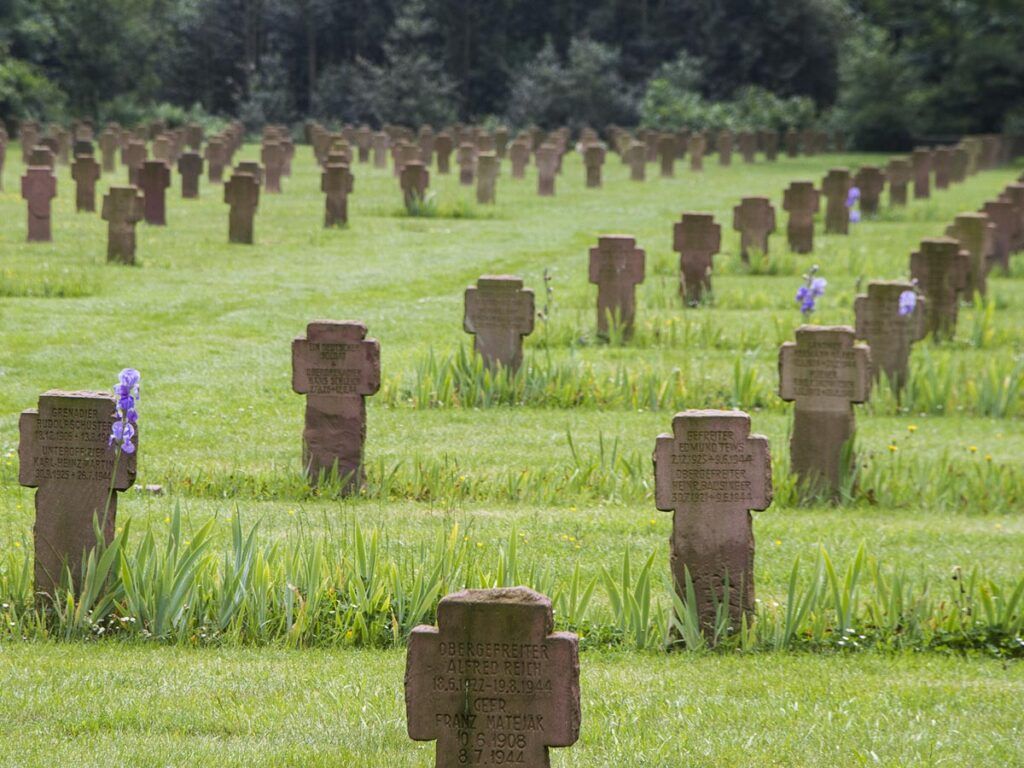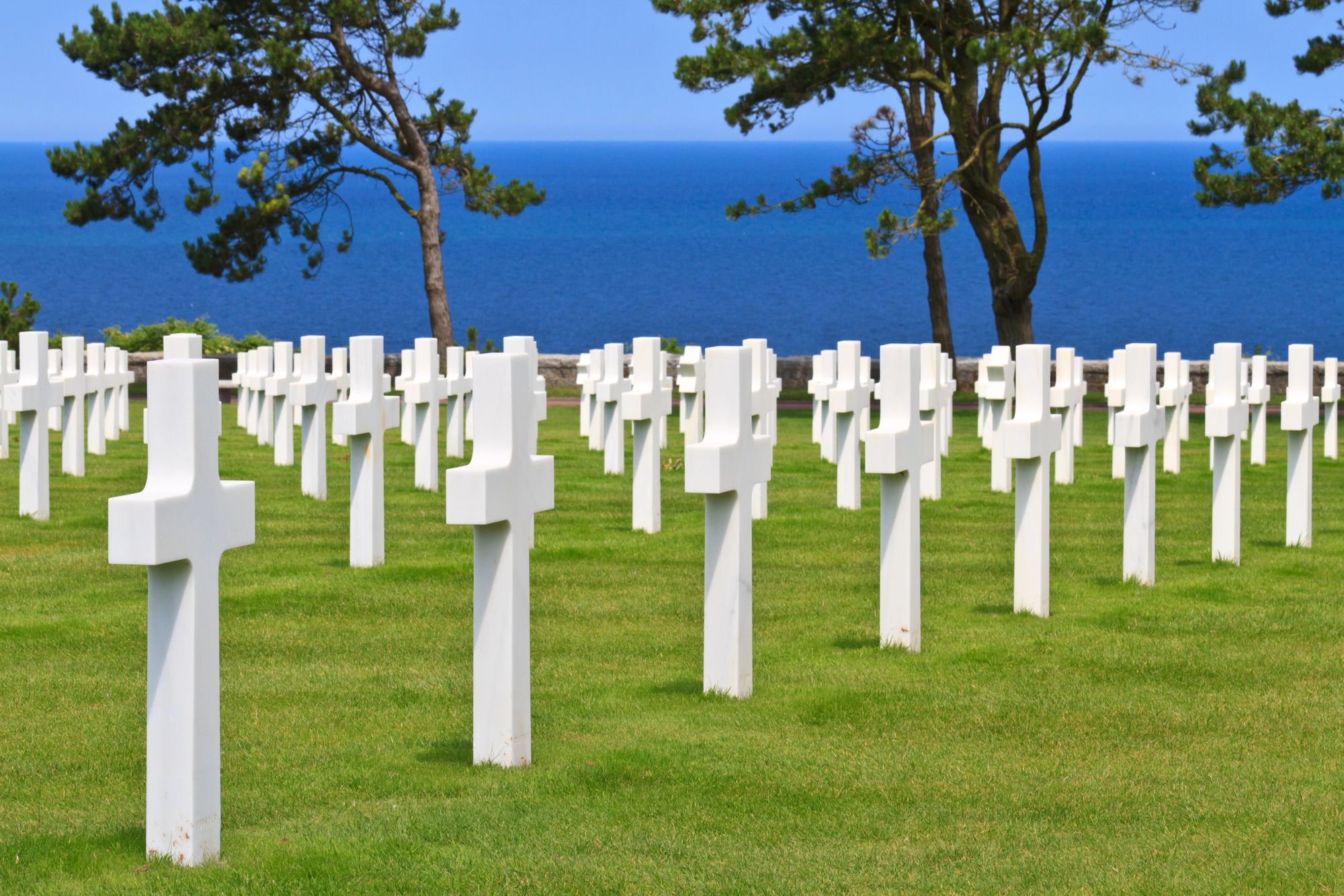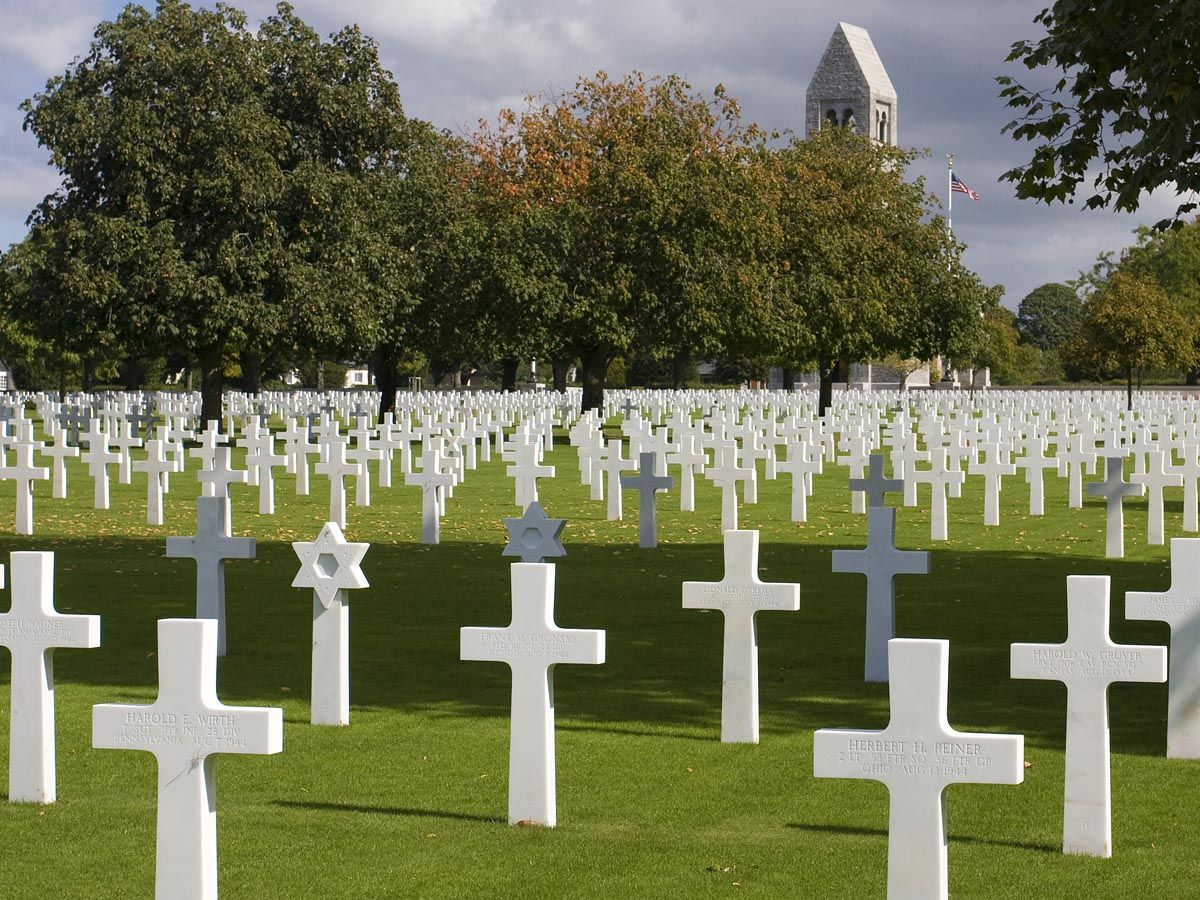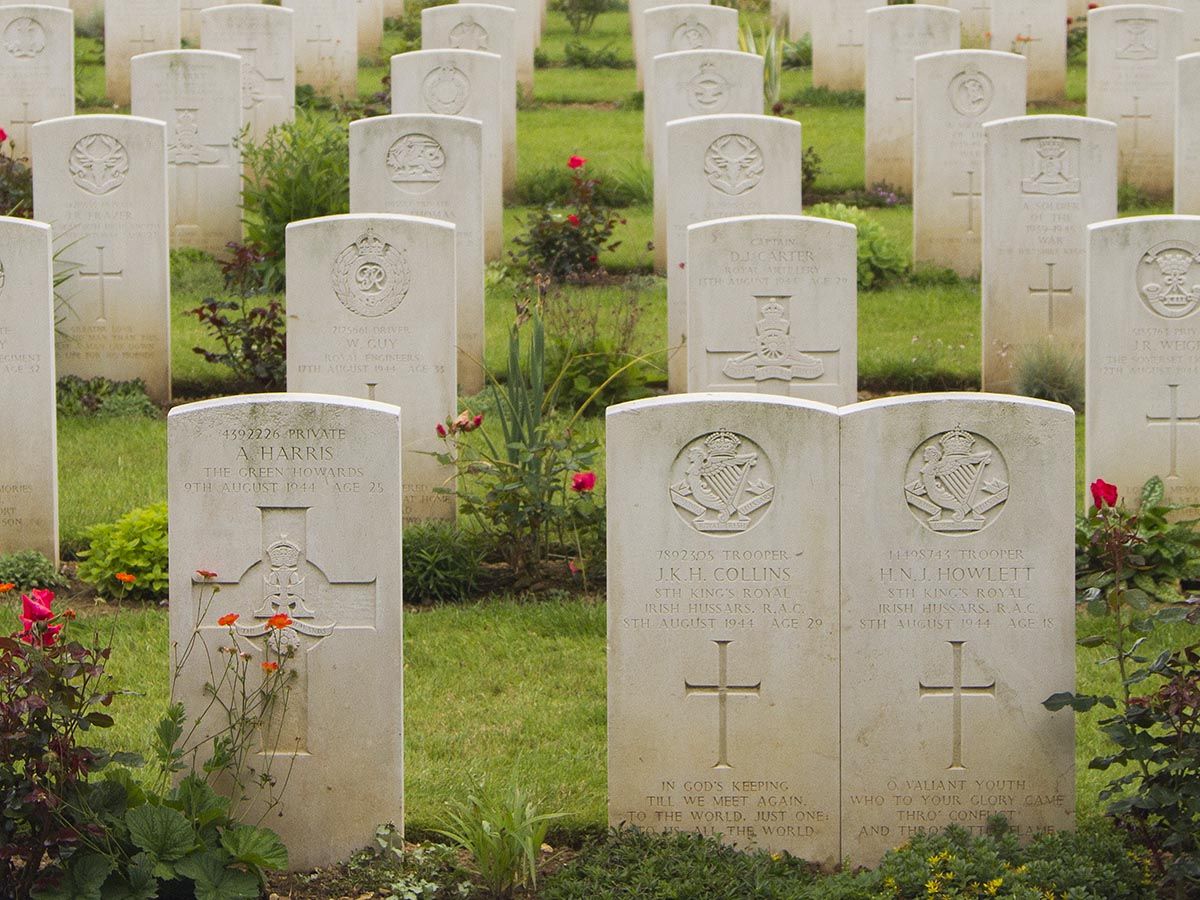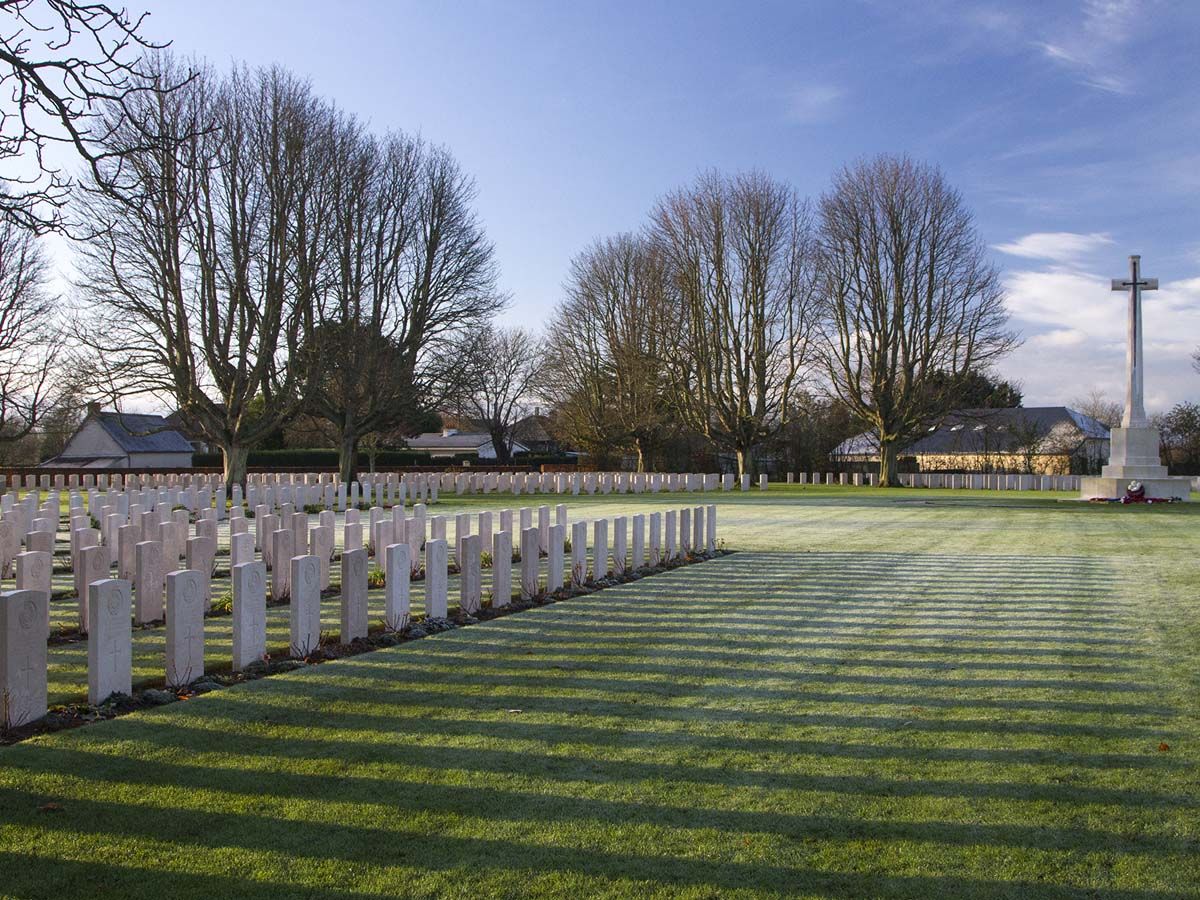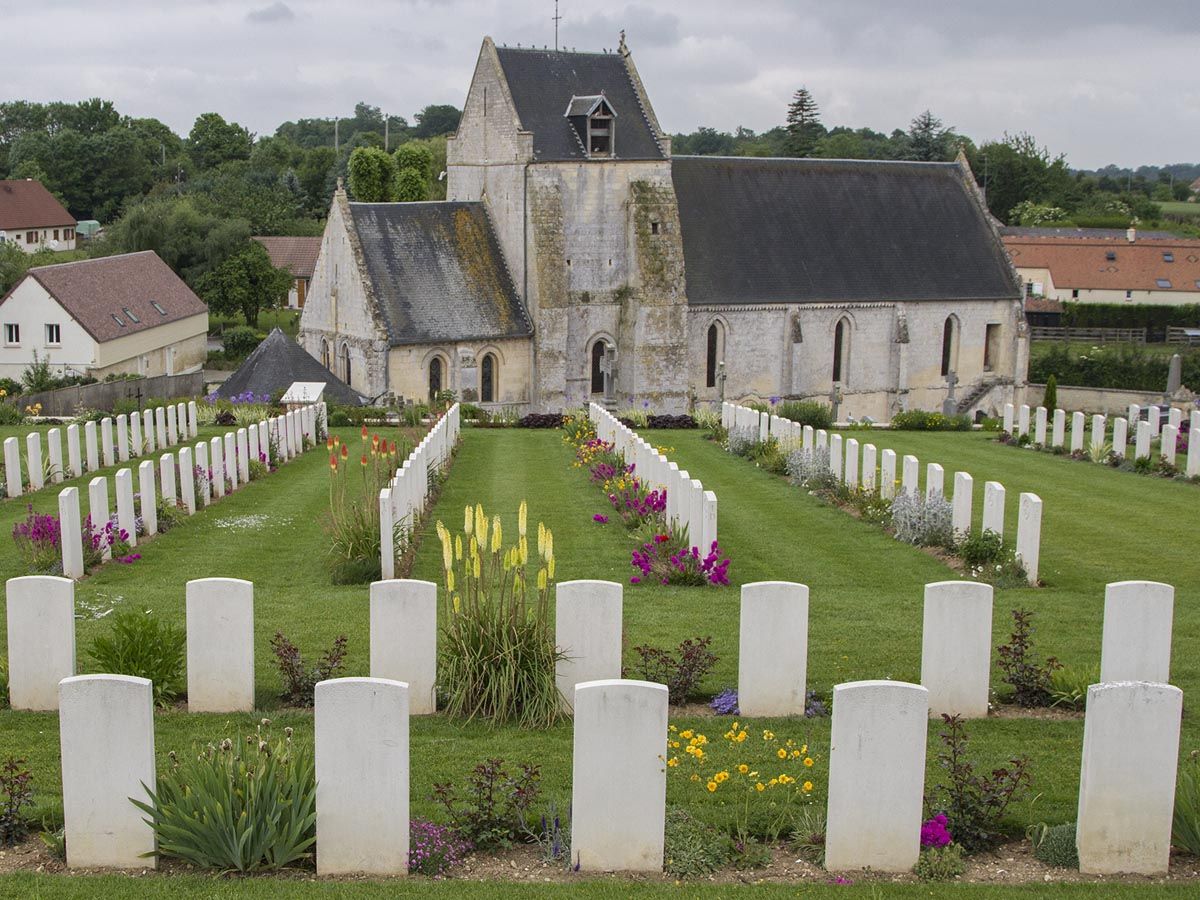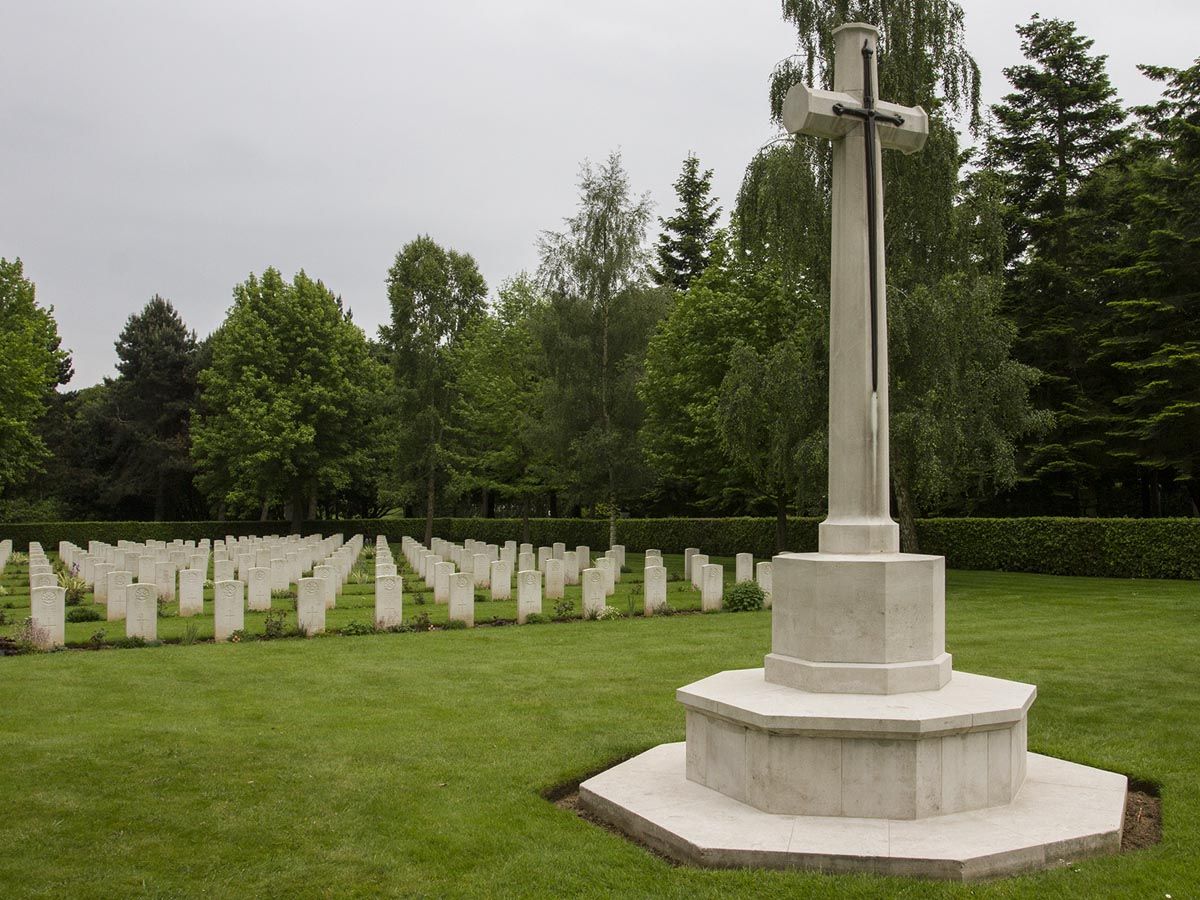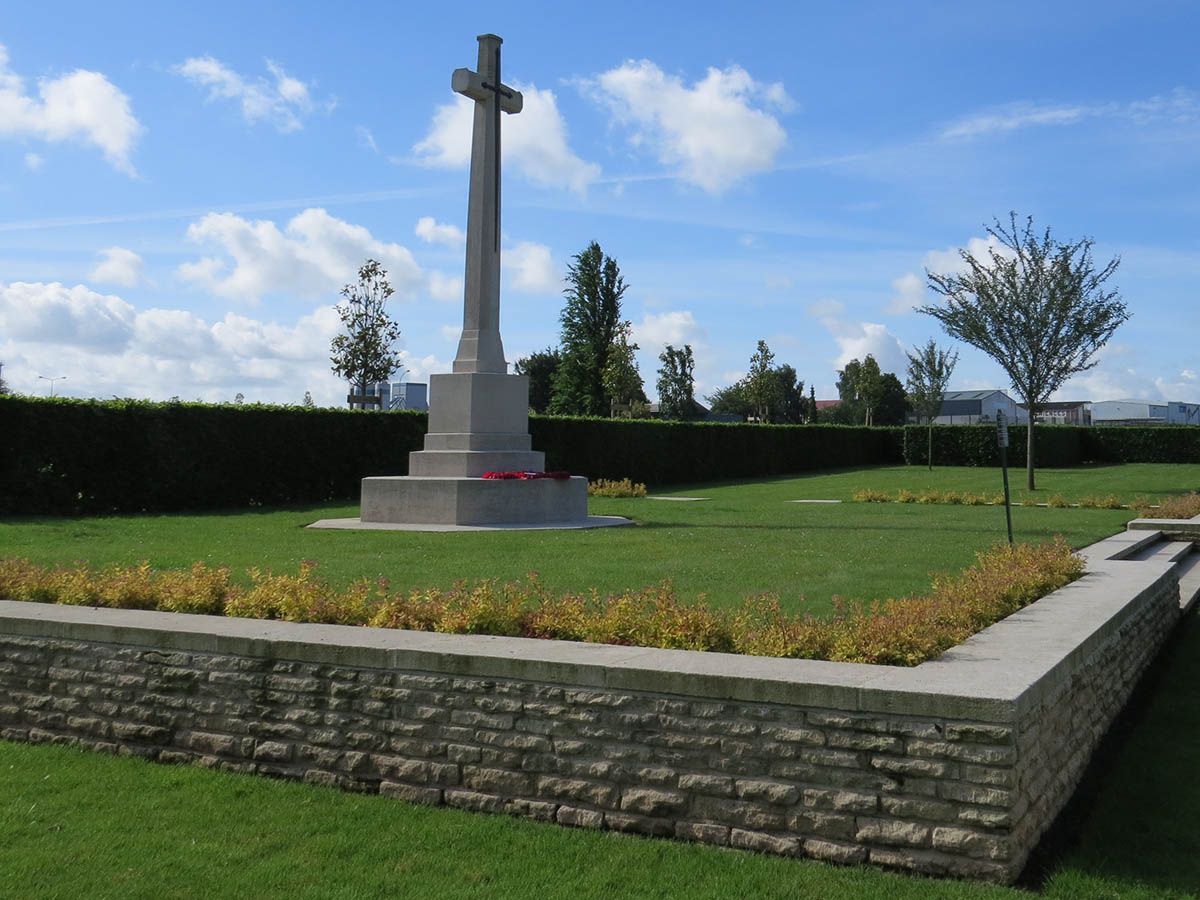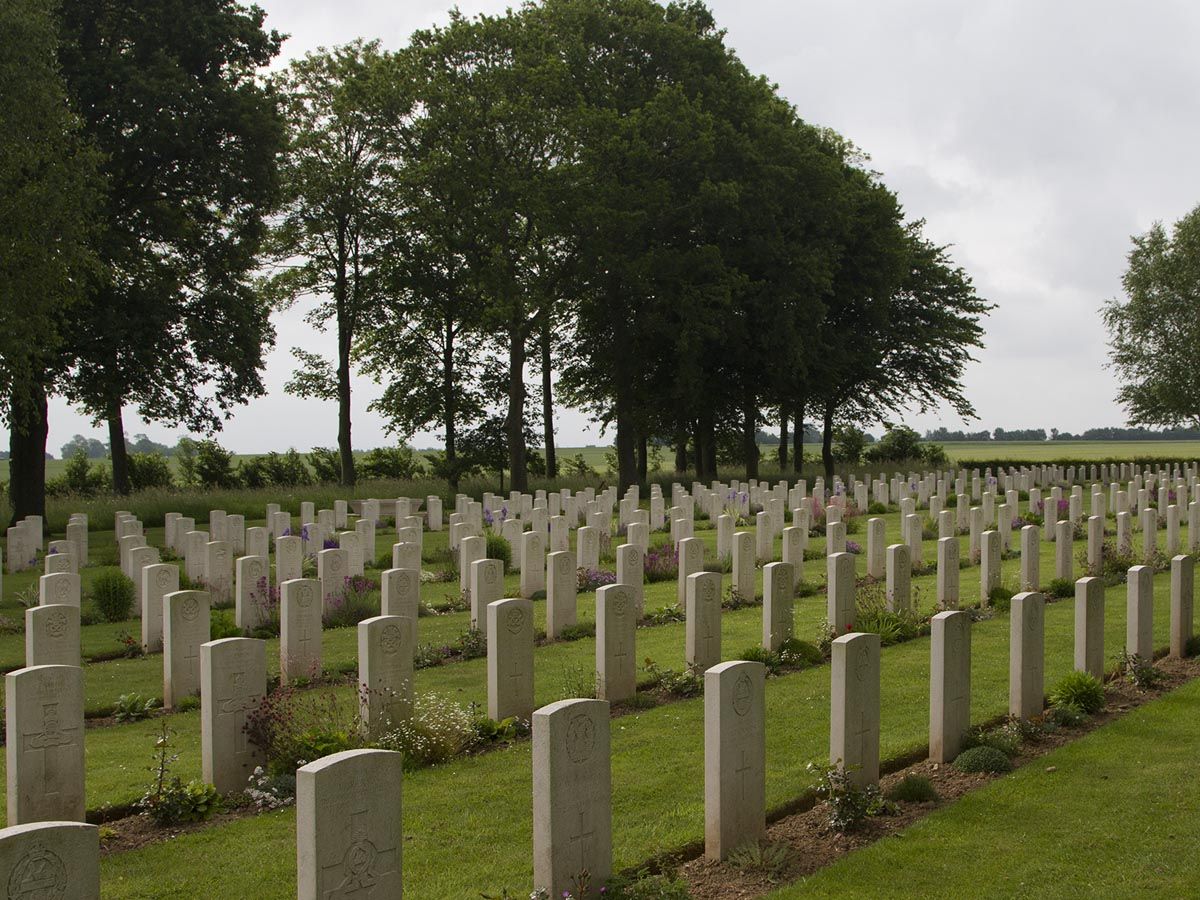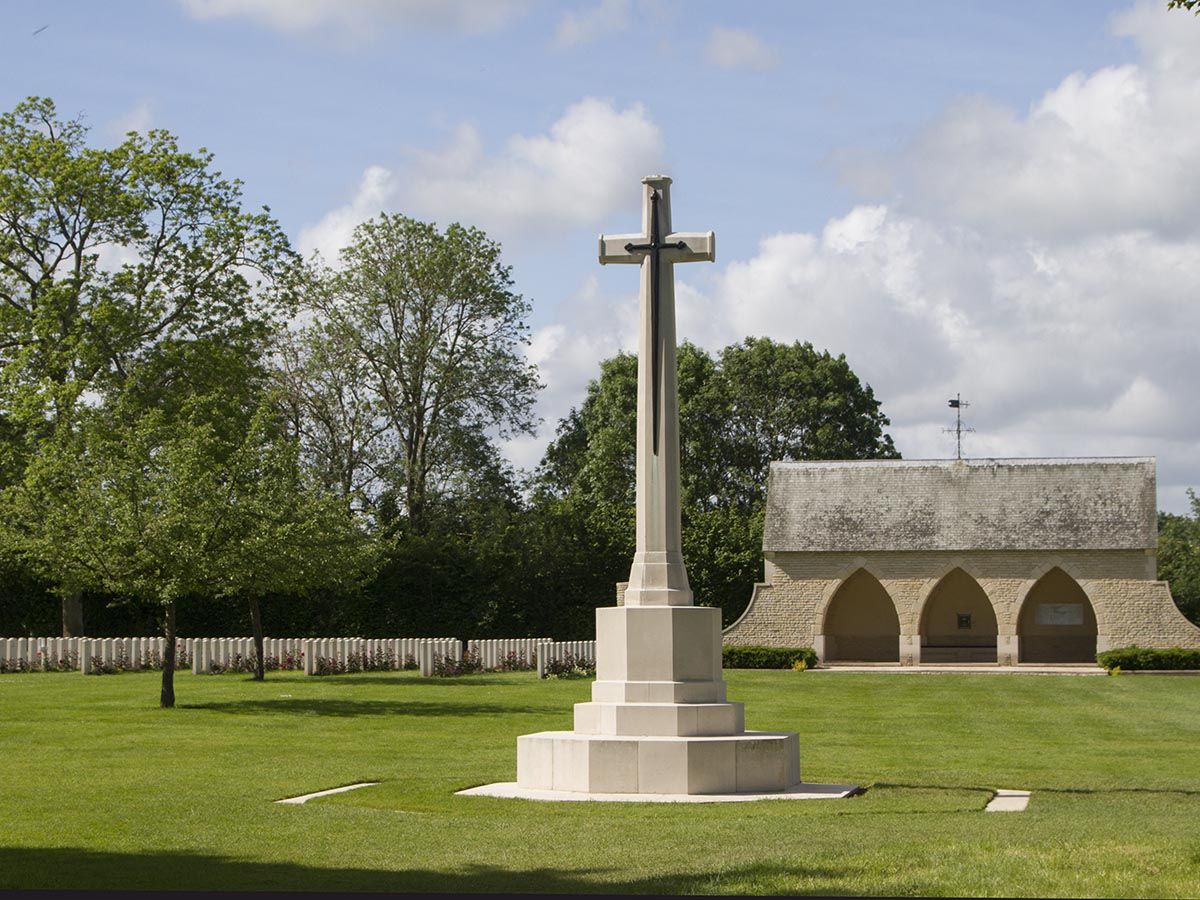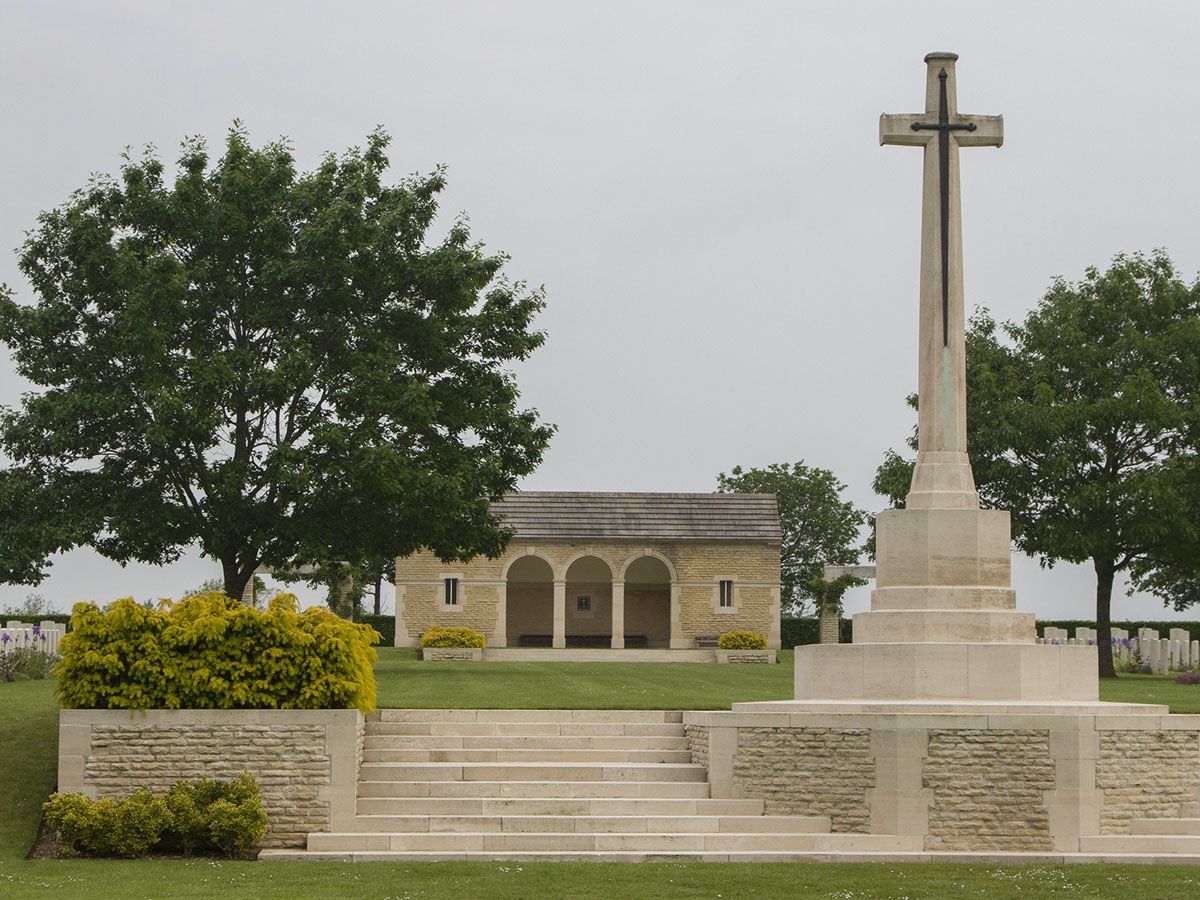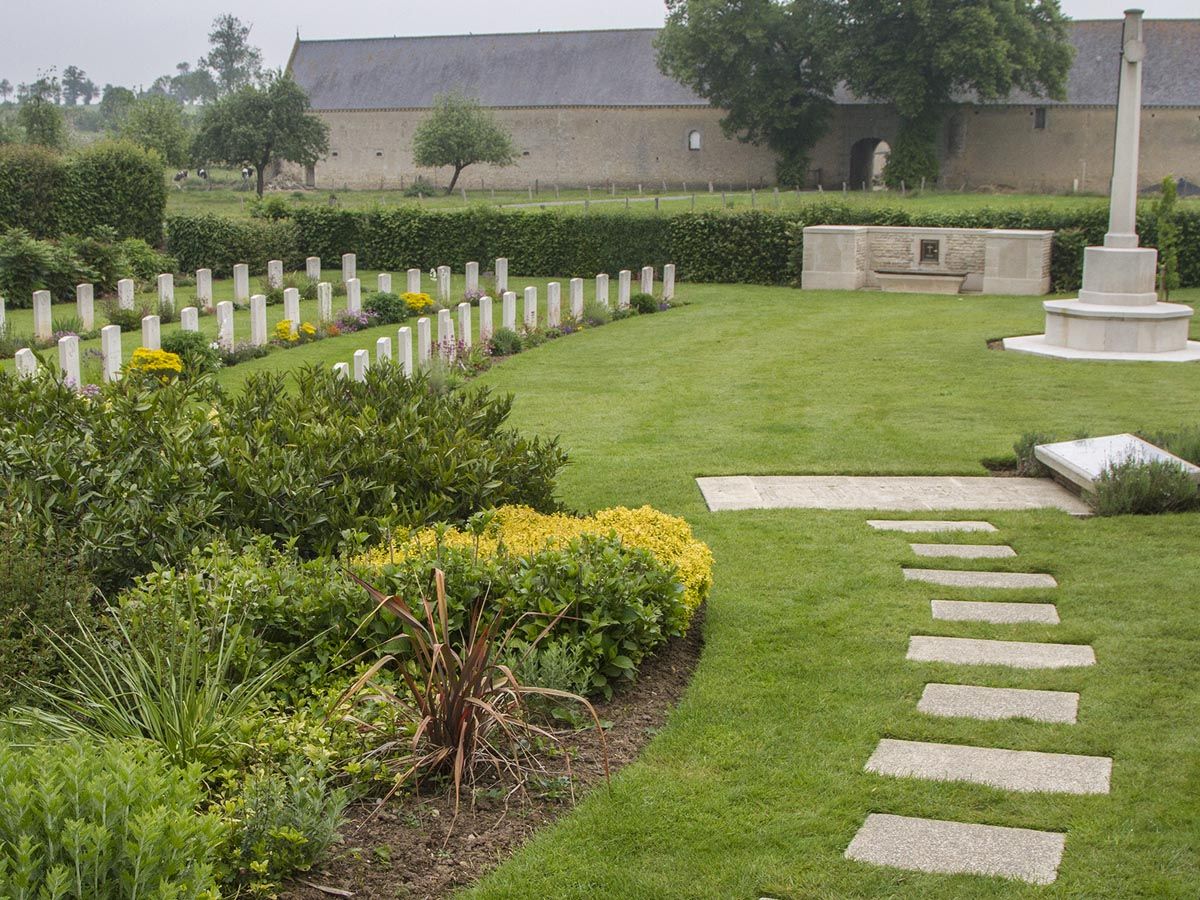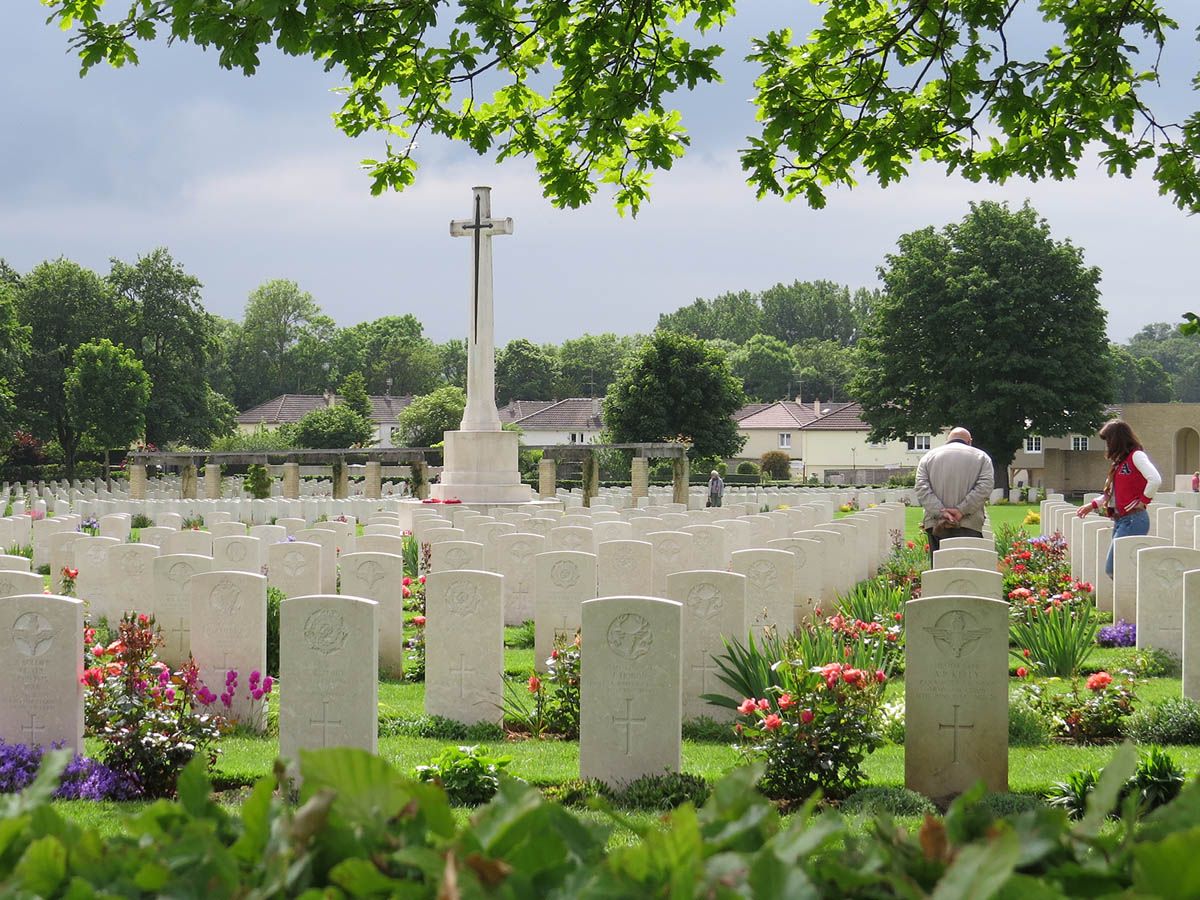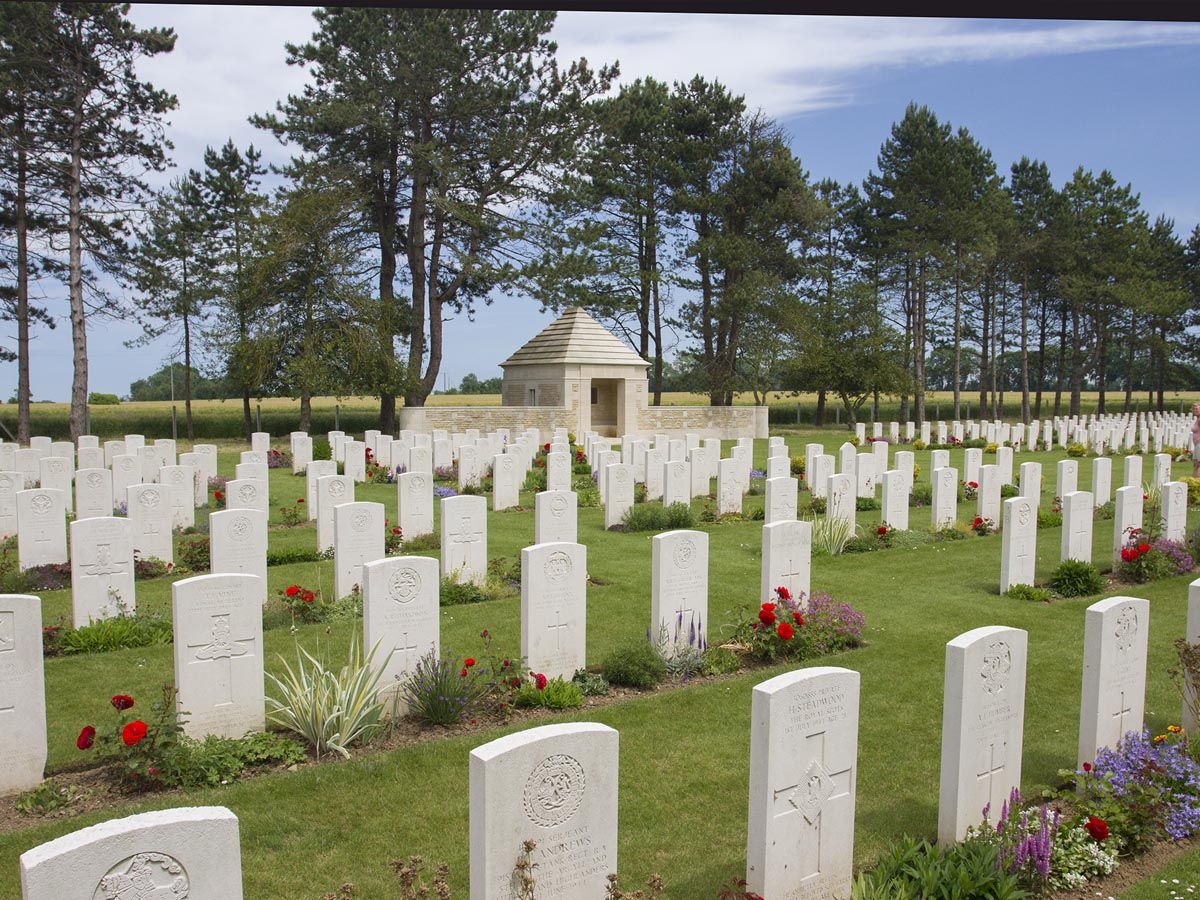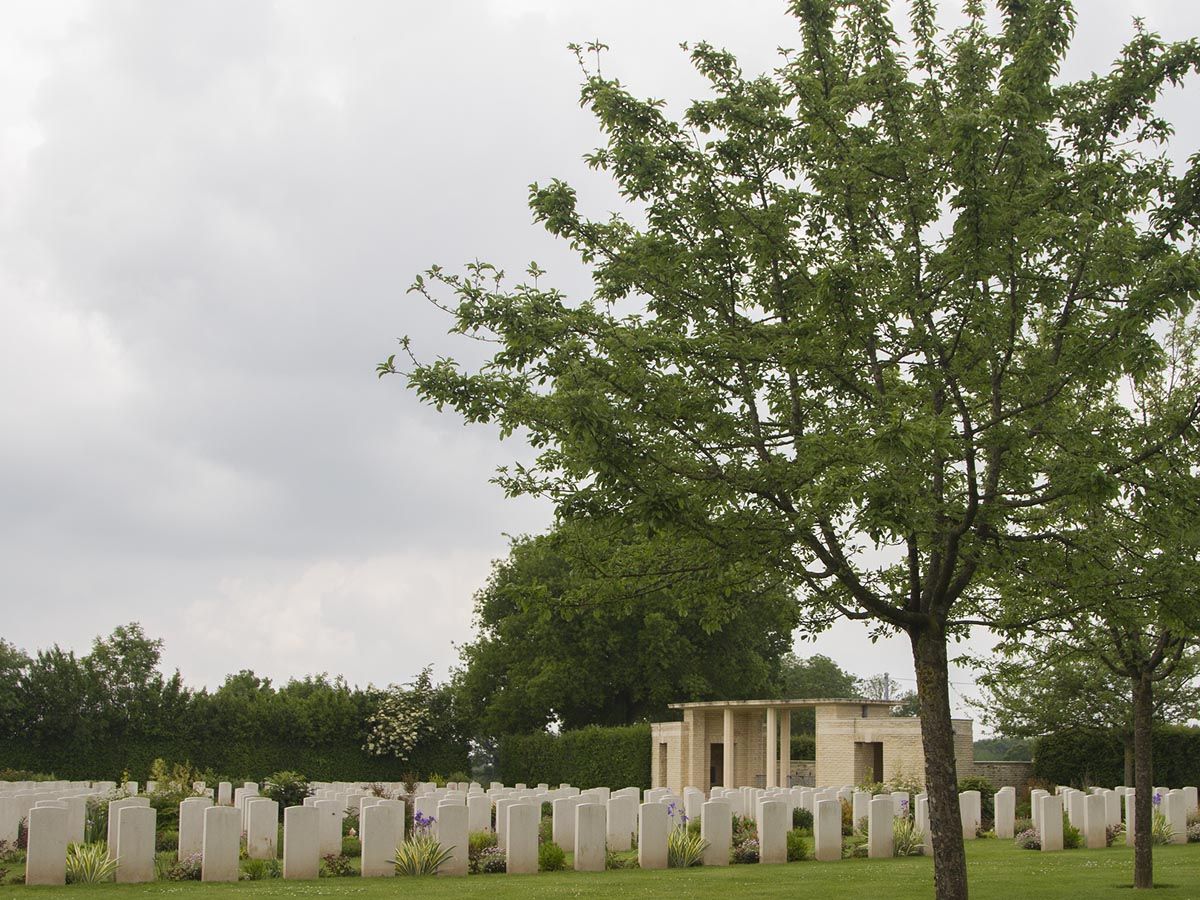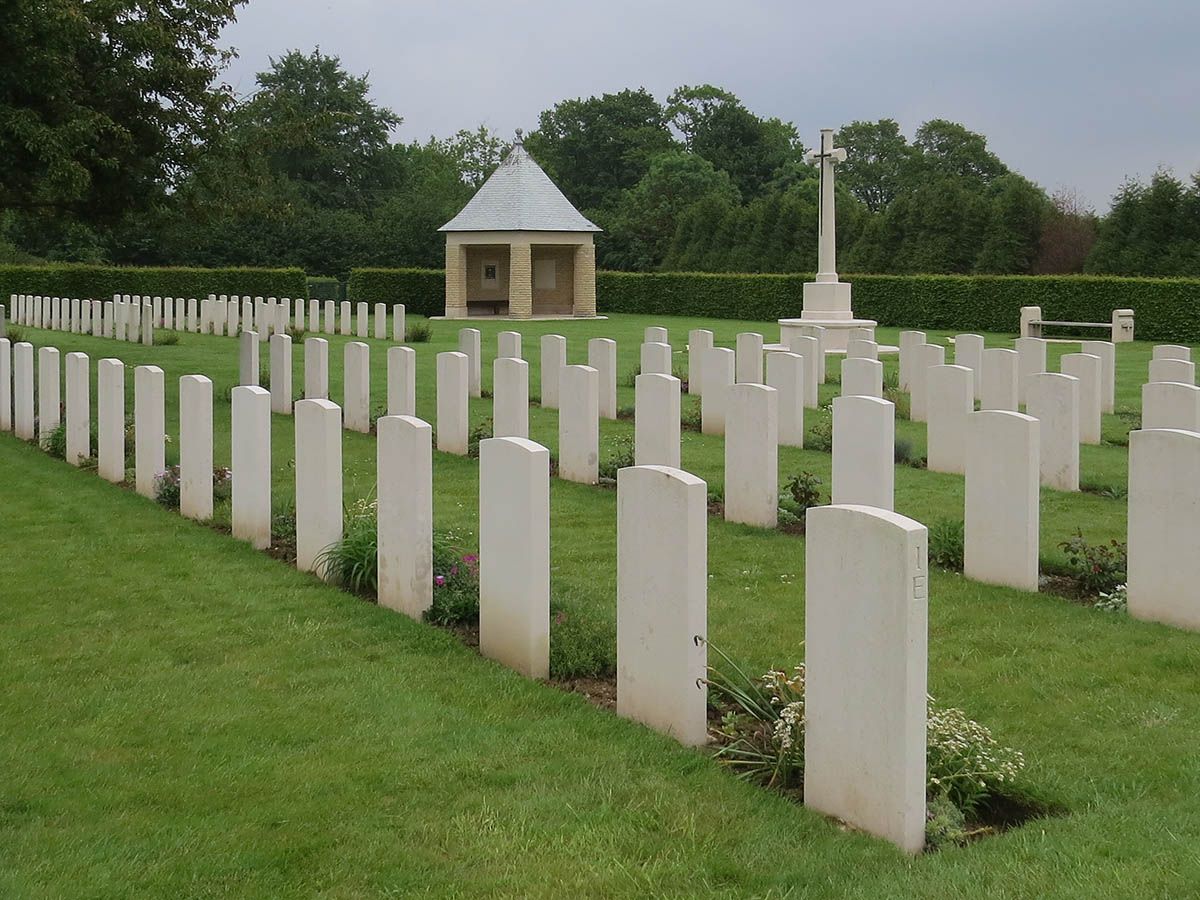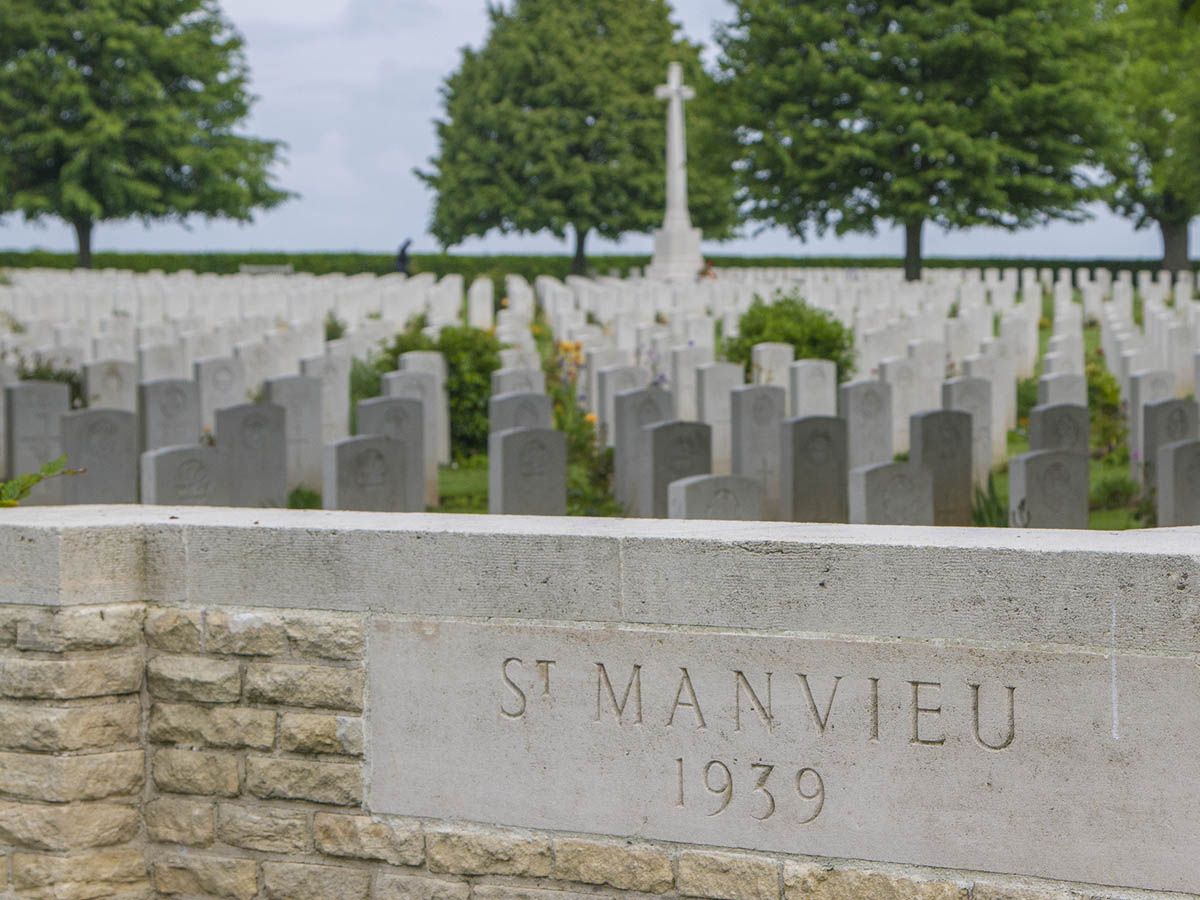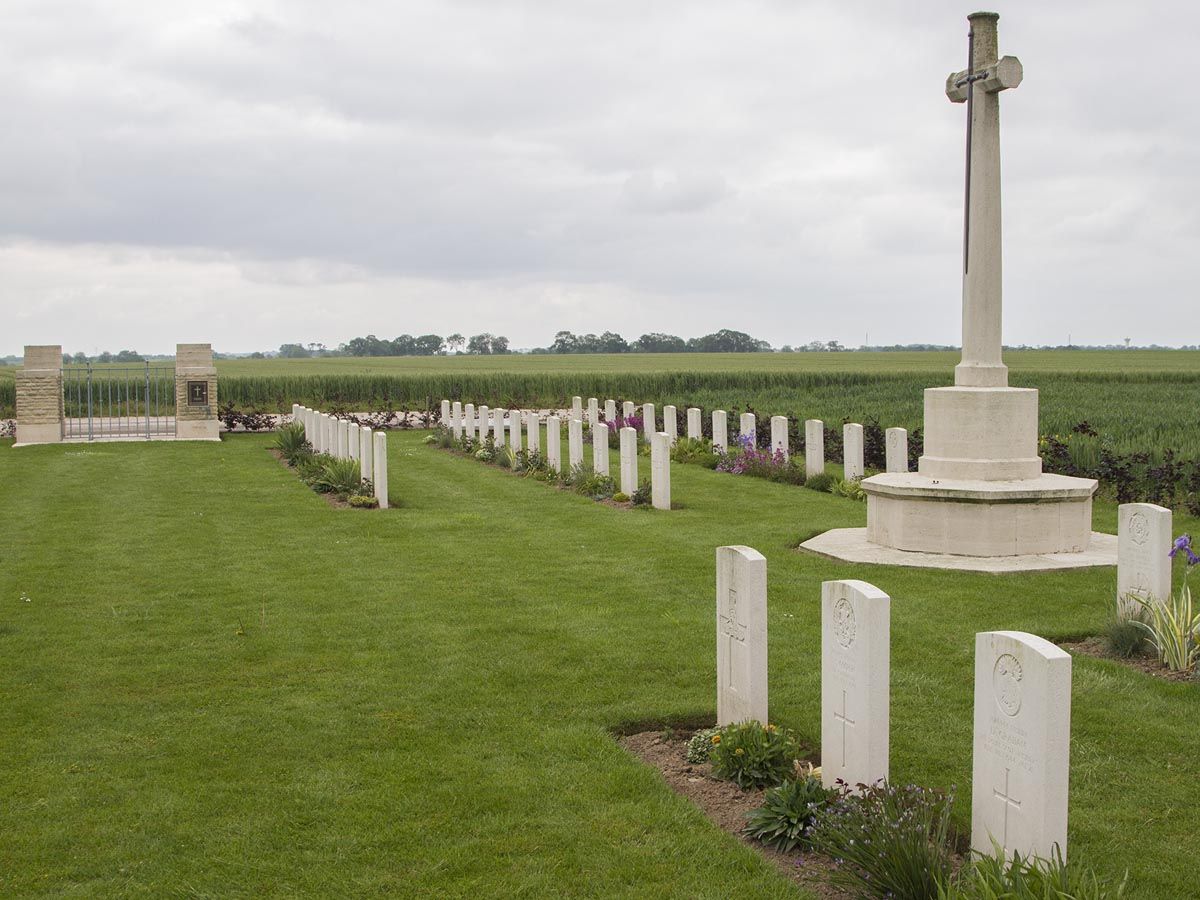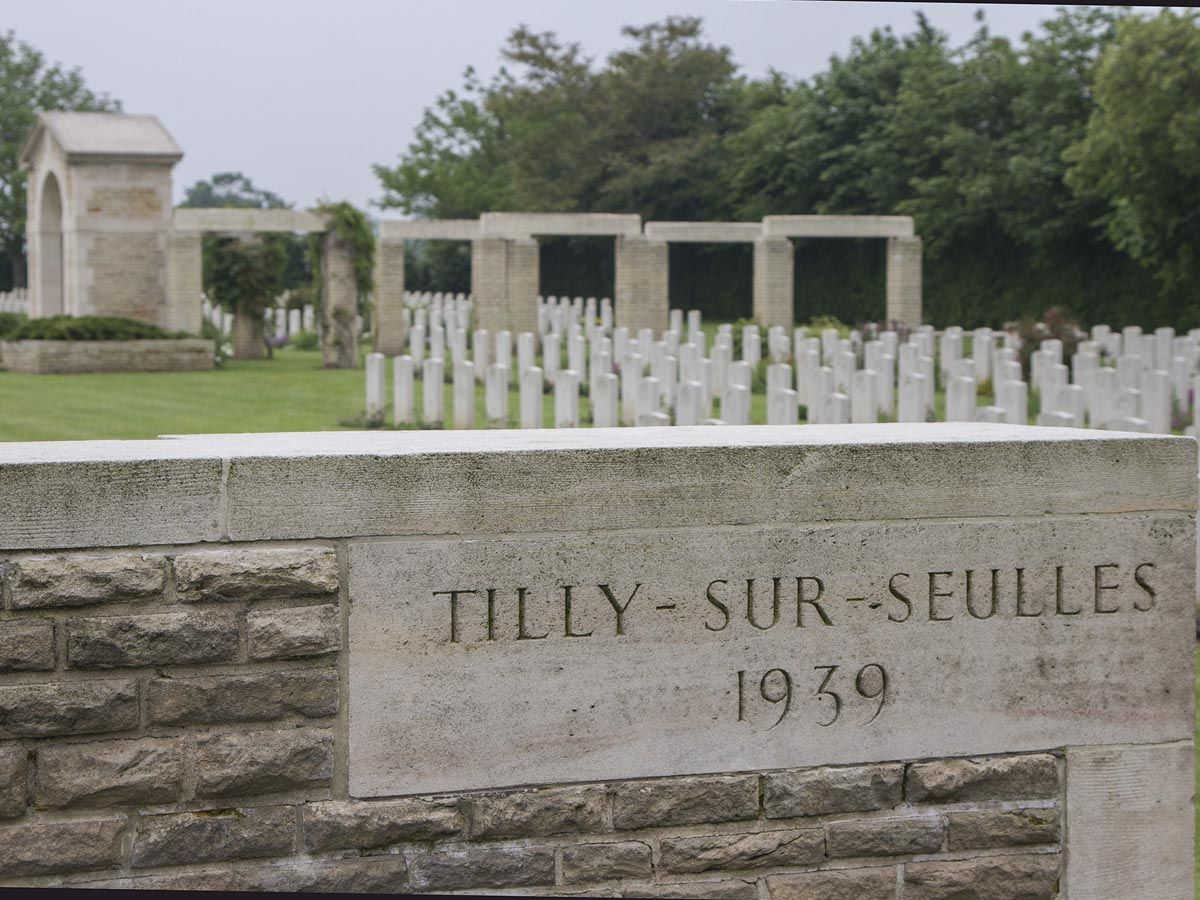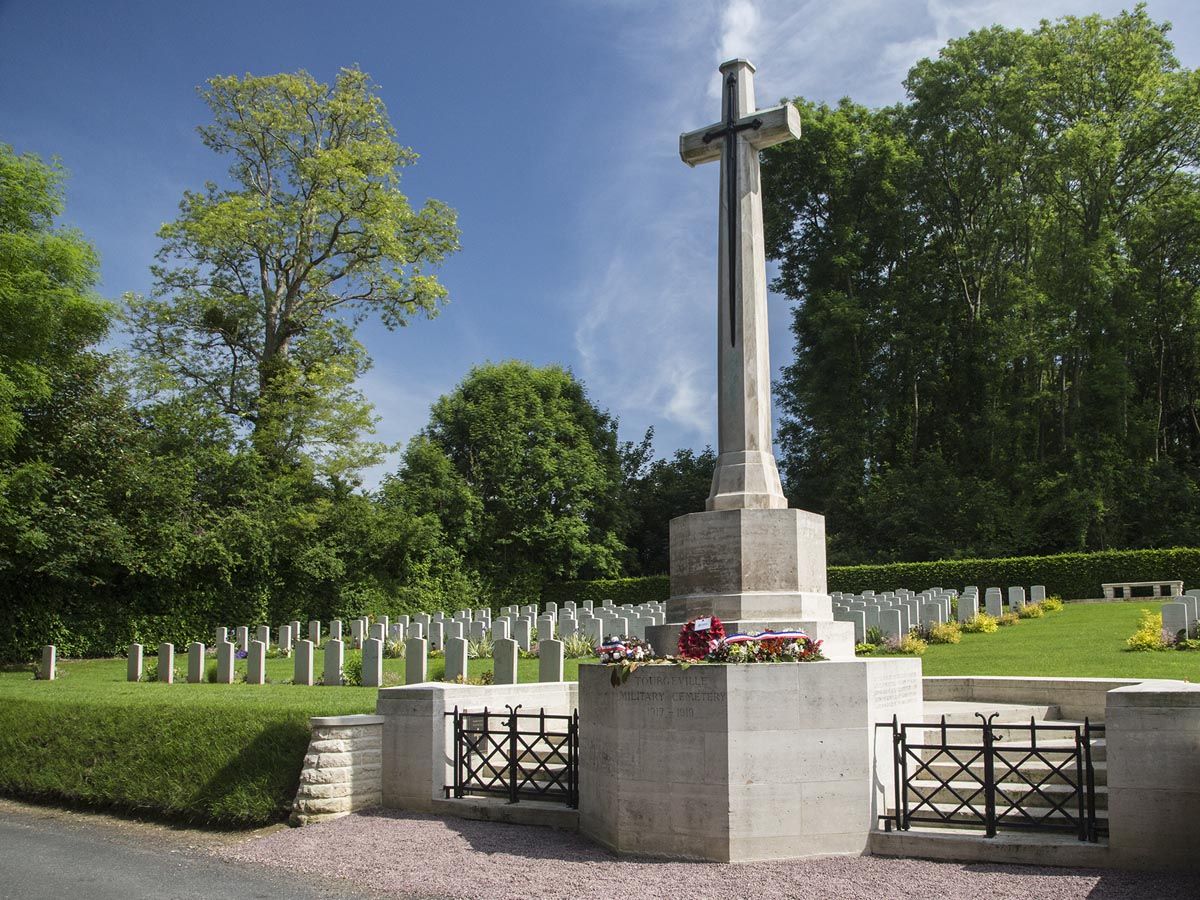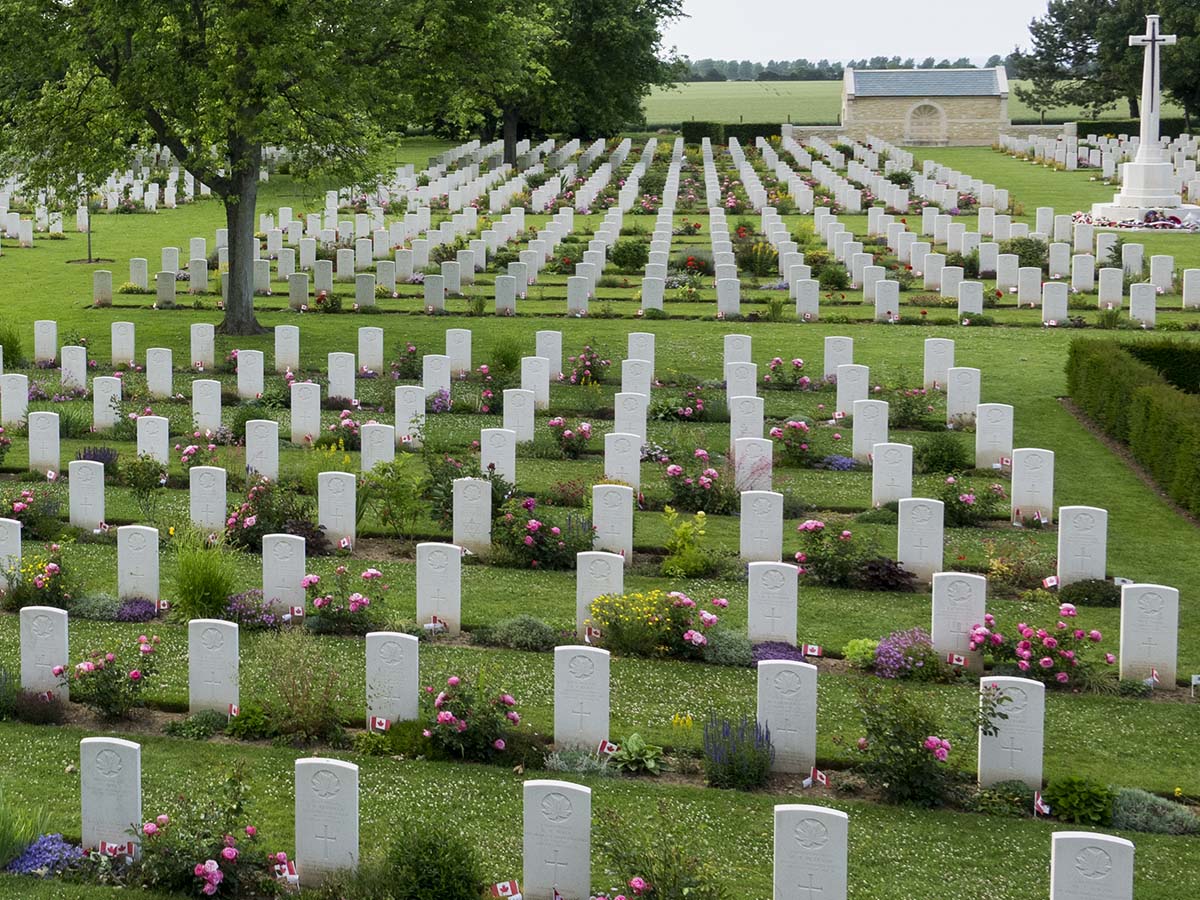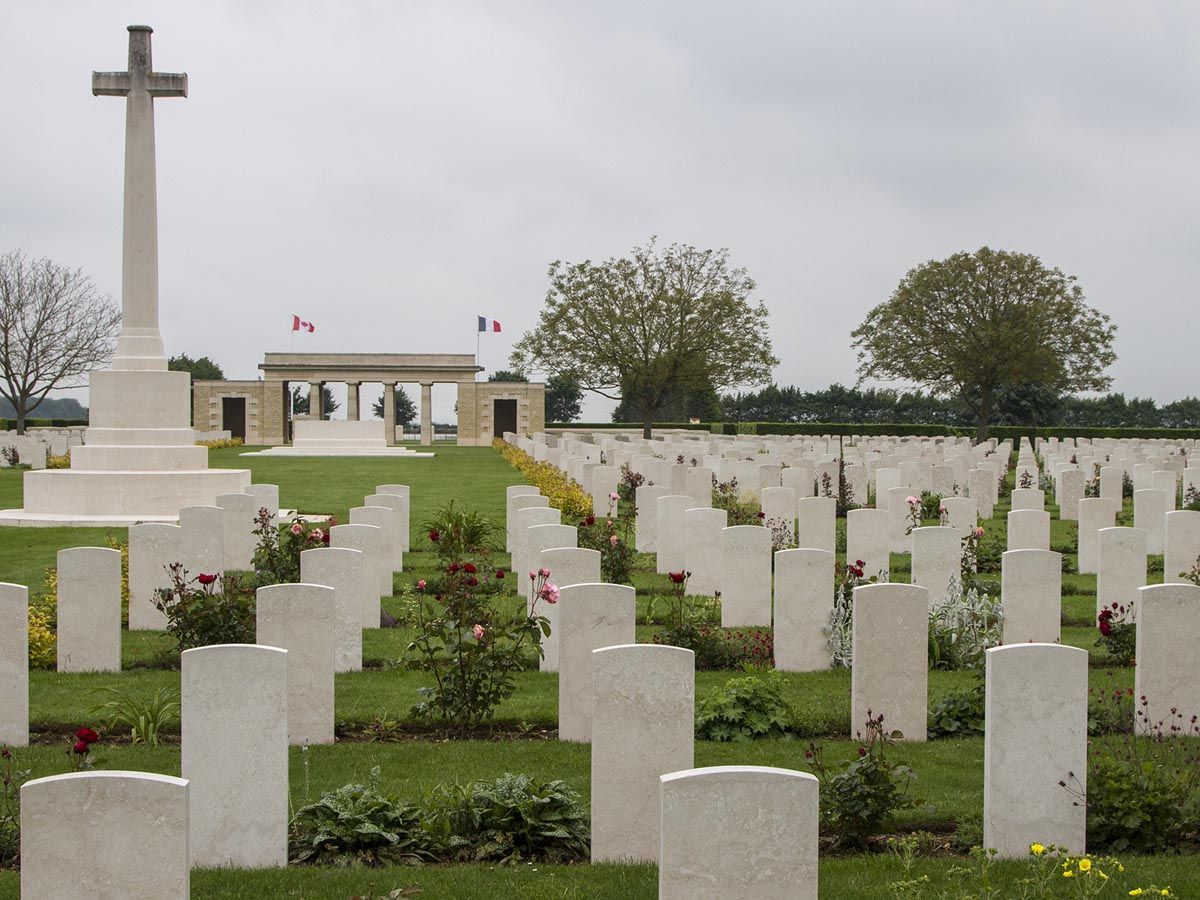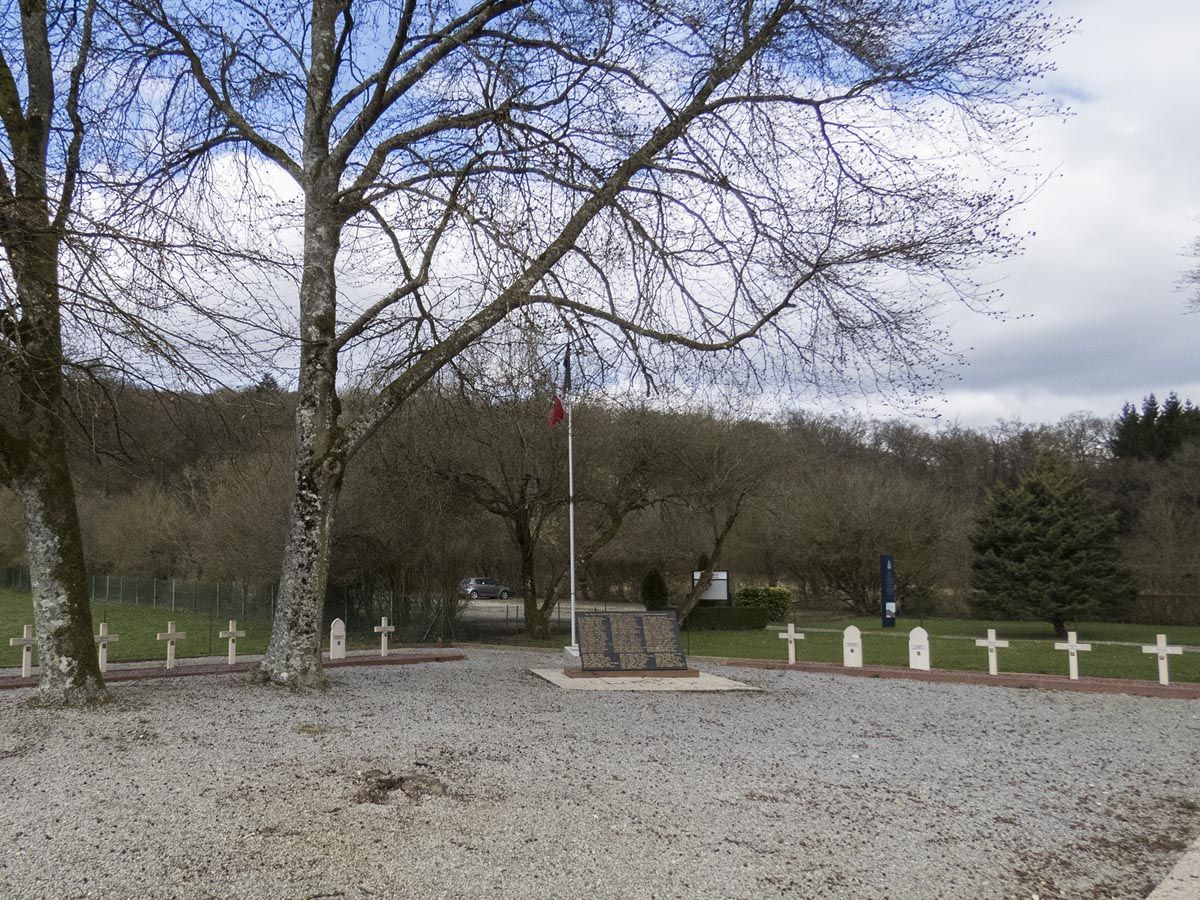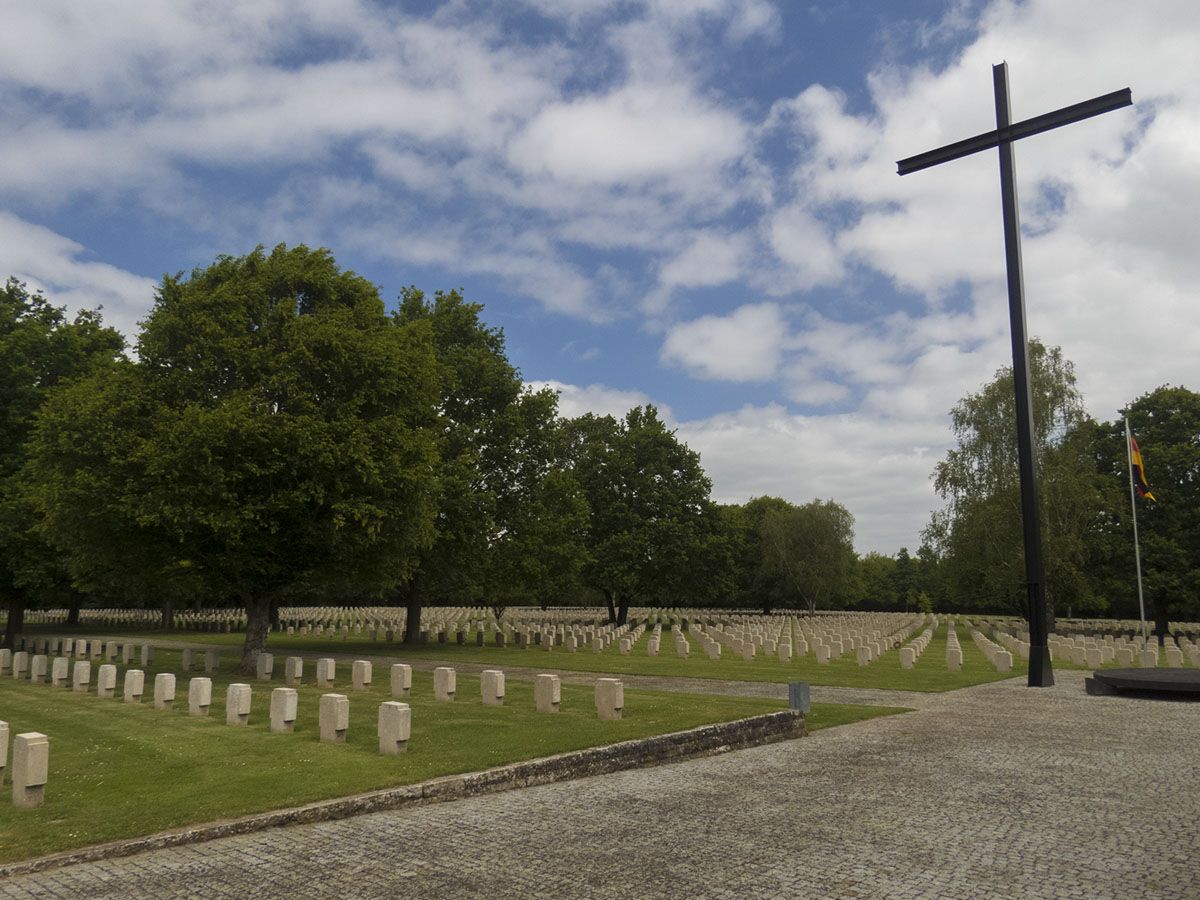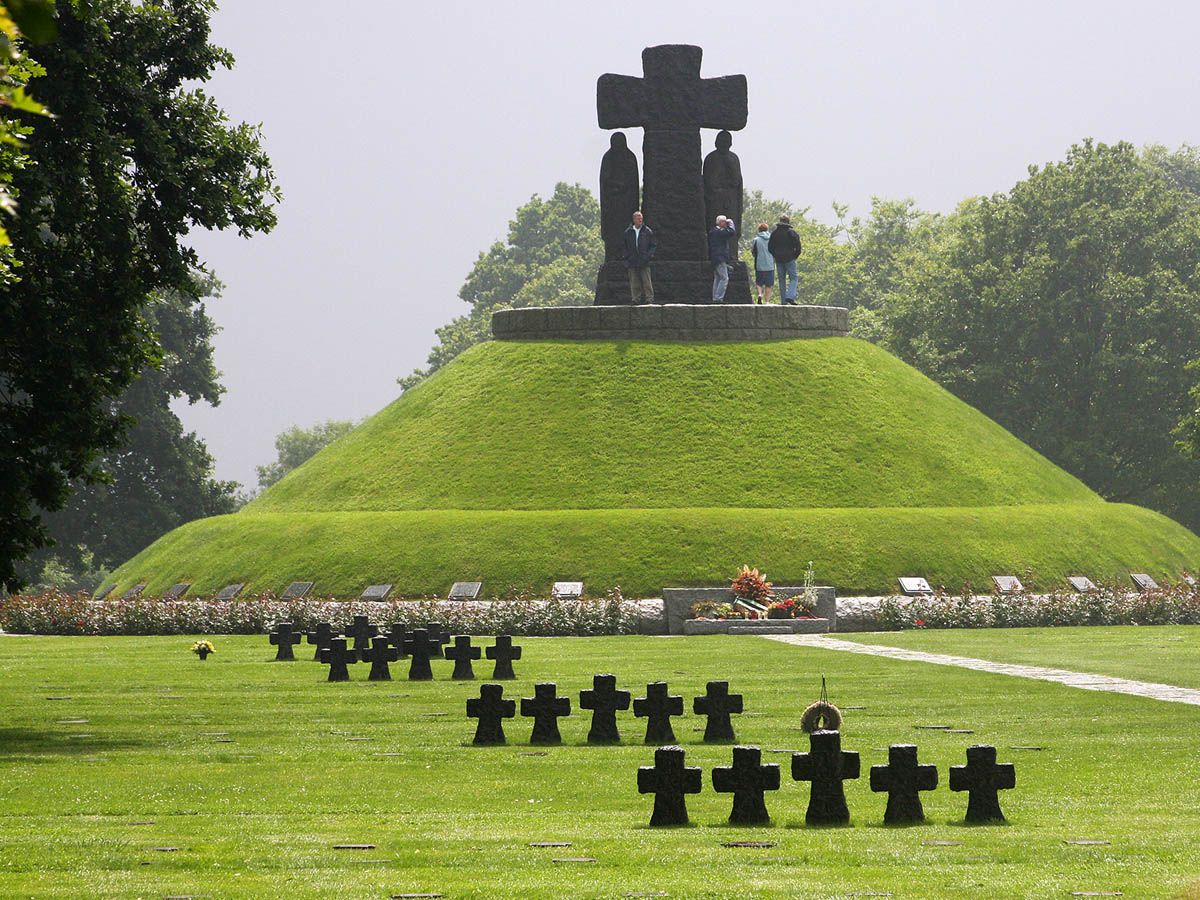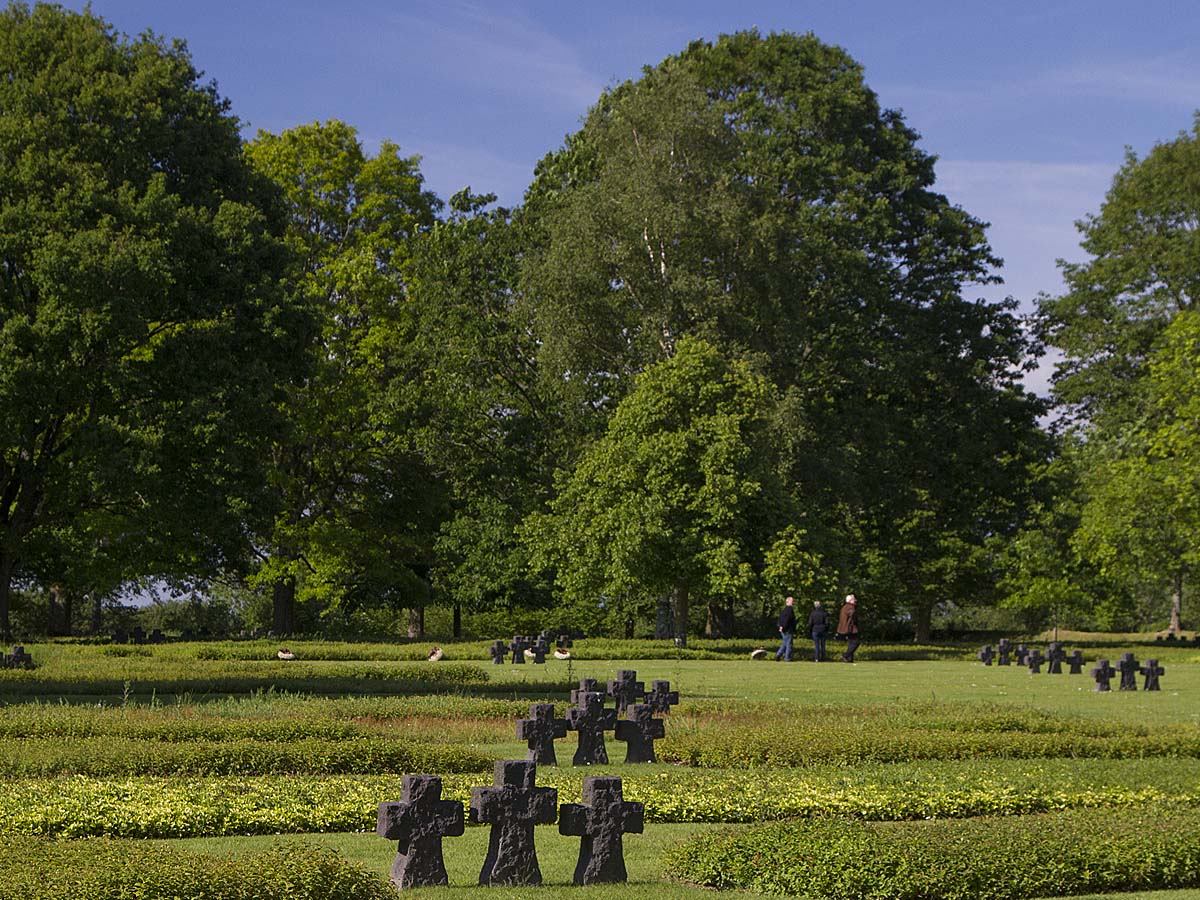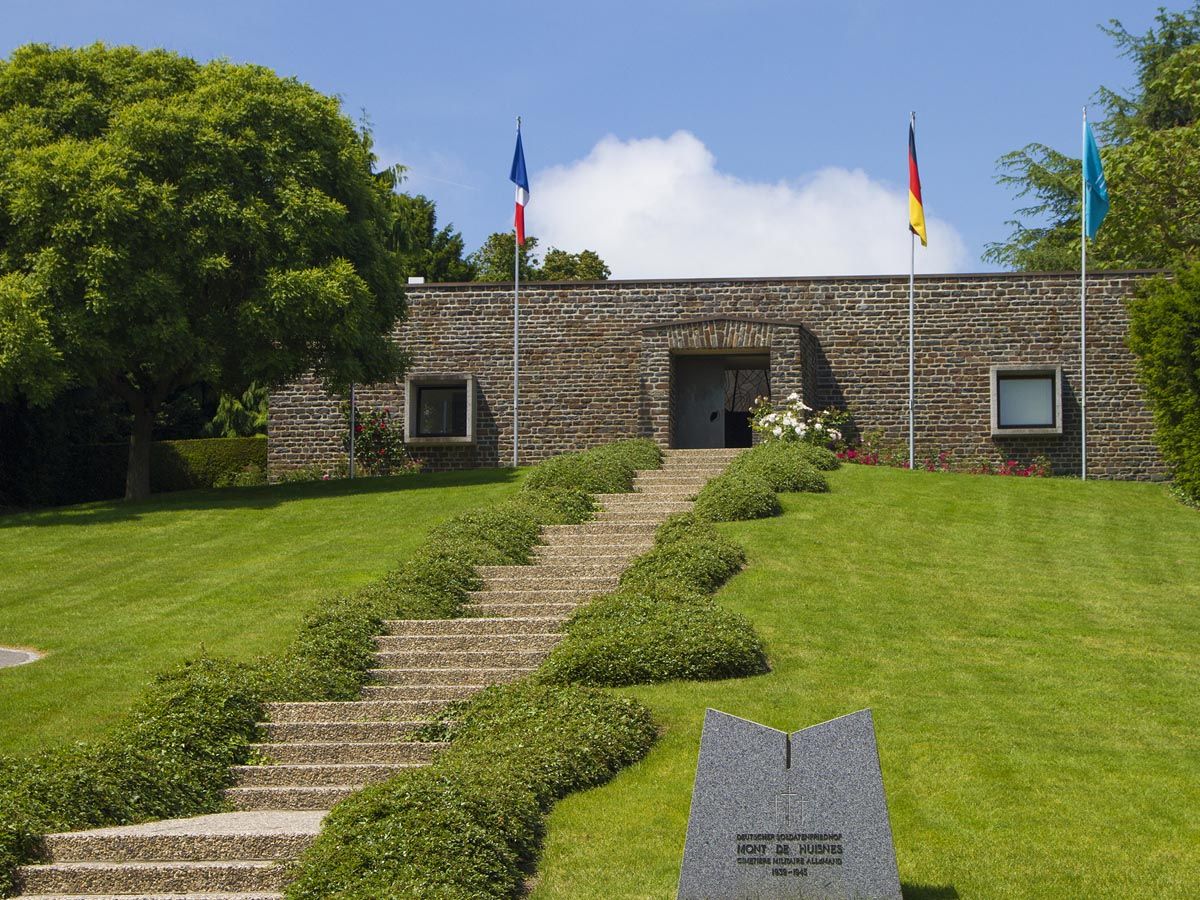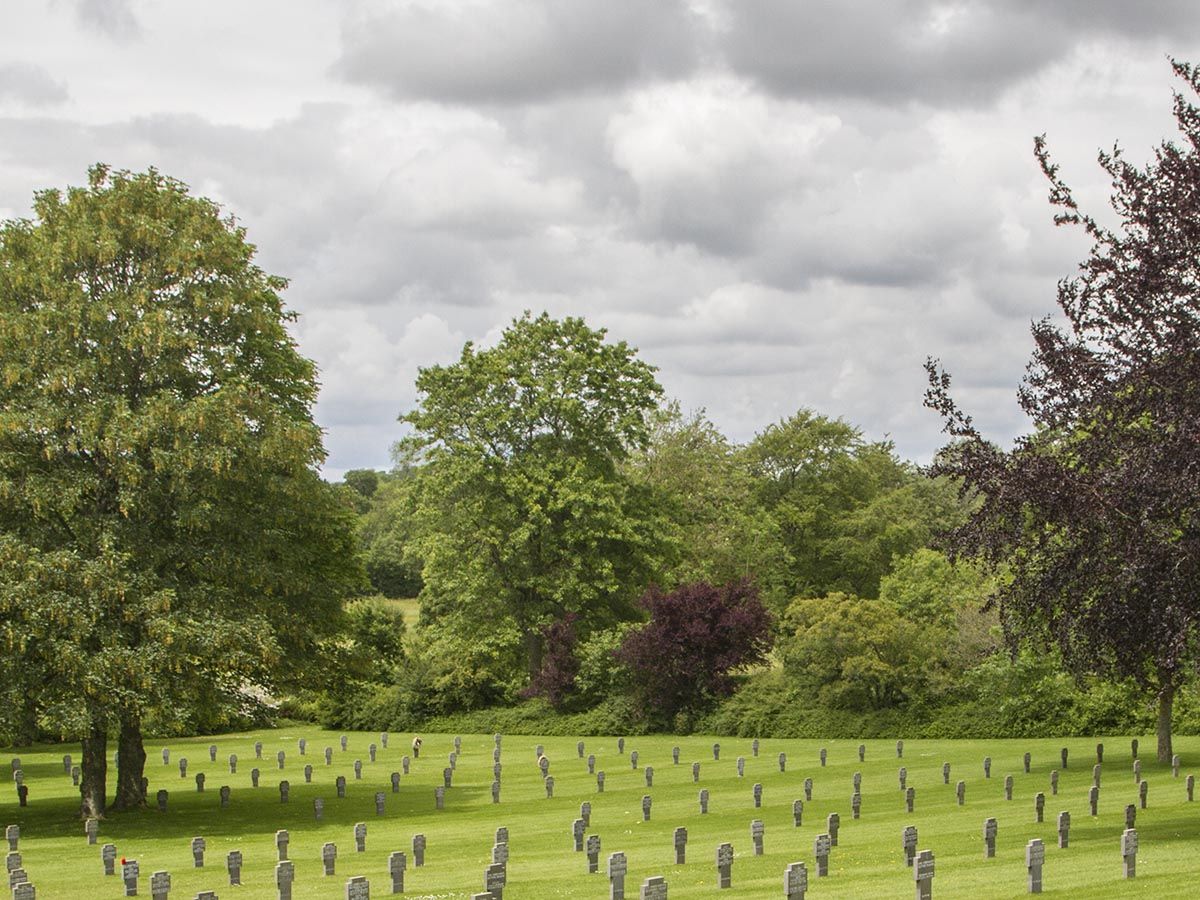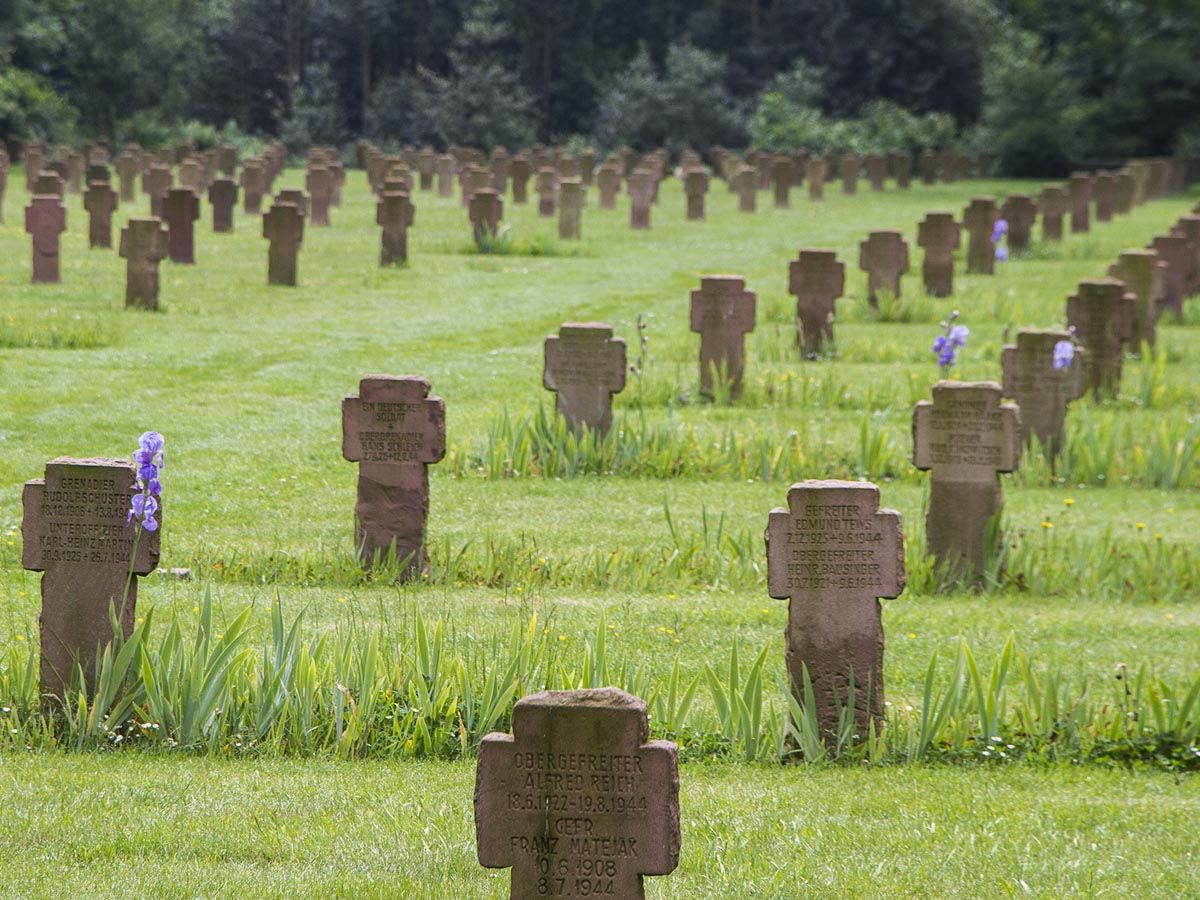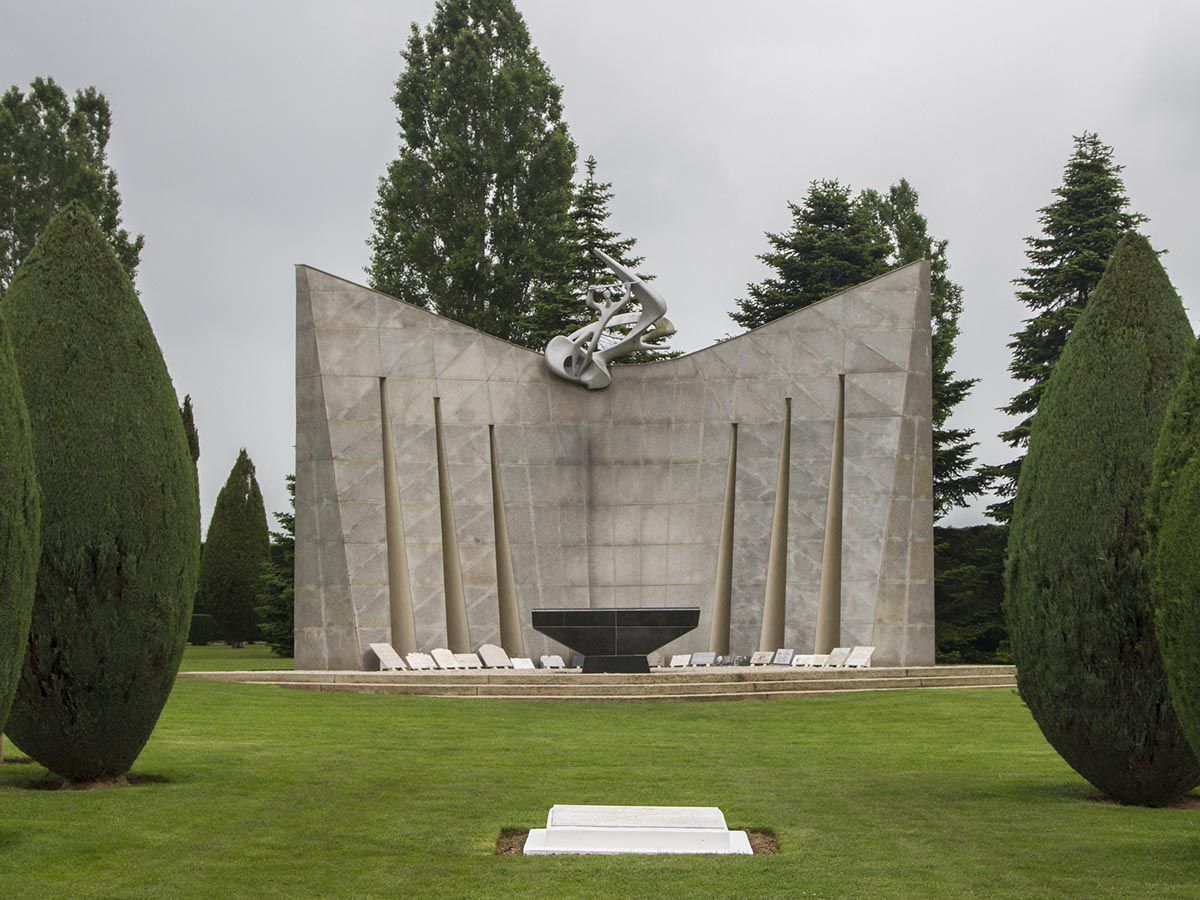Just a few miles west of Lisieux in Normandy lies a solemn place of remembrance – the Saint-Désir-de-Lisieux German War Cemetery. This final resting place holds the graves of 3,735 German soldiers who fell during World War II, many from the 15th/7th Army and 5th Panzer divisions. As you walk among the rows of graves, you’ll experience a powerful testament to the human cost of war and an important site of reconciliation between former enemies.
You’ll find this cemetery about one kilometer west of the Saint-Désir village, just off the D159 road when traveling from Lisieux toward Caen. It’s one of six German military cemeteries established in France after the war through a special treaty between the two nations. The others are located in Champigny-Saint-André, Marigny, Mont-de-Huisnes, Orglandes and La Cambe.
When you visit, take time to absorb the peaceful atmosphere that now surrounds this place of memory and emotion. Unlike the Allied cemeteries you might have seen elsewhere in Normandy, German war cemeteries often have a distinct character – simpler and more somber in design, reflecting different approaches to honoring the fallen. This stark difference makes Saint-Désir an essential stop for anyone seeking to understand the complete human story of World War II in Normandy.
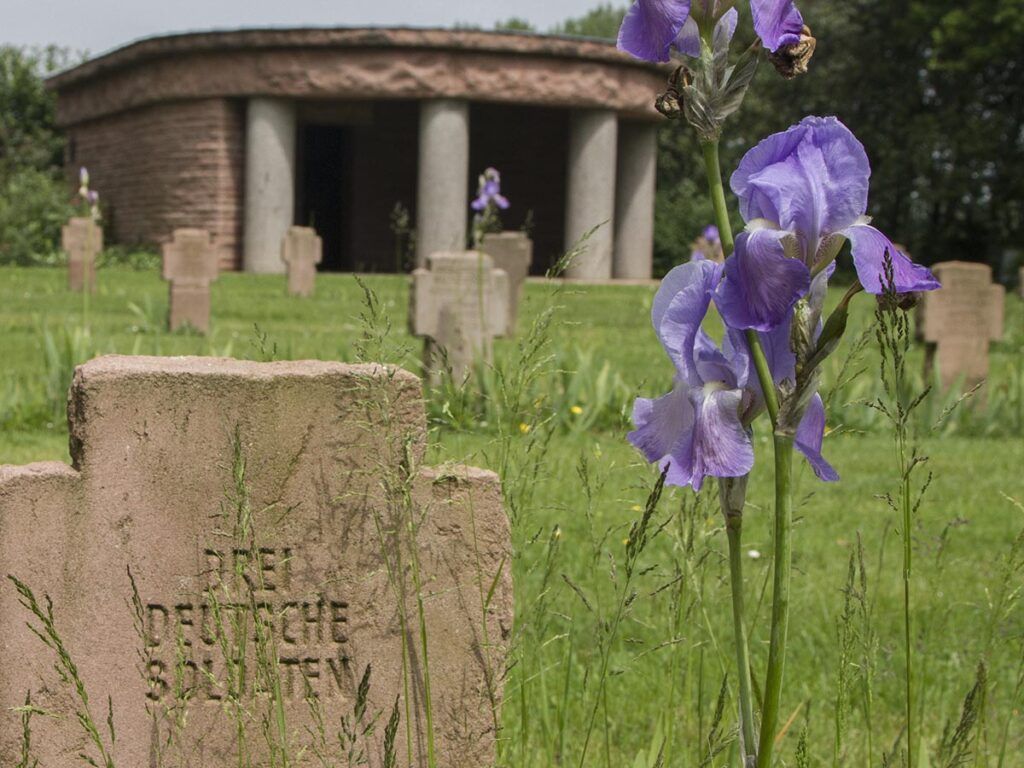
History and Background
The St-Désir-de-Lisieux German War Cemetery stands as a solemn reminder of the casualties of World War II. This site holds significant historical importance, with origins dating back to the immediate aftermath of the Normandy campaign in 1944.
First World War Origins
While many war cemeteries in Normandy have connections to both world wars, St-Désir-de-Lisieux primarily contains German casualties from World War II. The area, however, saw military activity during the First World War as well. The concept of organized military burials evolved considerably after WWI, when the Commonwealth War Graves Commission established standards for respectful commemoration of fallen soldiers.
This approach influenced how German casualties would later be handled. During WWI, military burial practices shifted from mass graves to individual plots with proper identification – a practice that would continue into WWII.
The Cemetery’s Establishment
The cemetery was initially created by the British Graves Registration Commission in August 1944. It’s interesting to note that originally, British and German casualties were buried in adjacent fields at this location. This arrangement reflected the immediate needs following the Battle of Normandy.
Most soldiers interred here fell during the final days of the Normandy campaign. They were primarily from the German 15th/7th Army and the 5th Panzer Army during their retreat toward the Seine. The cemetery now contains 3,735 German soldiers who lost their lives in the conflict.
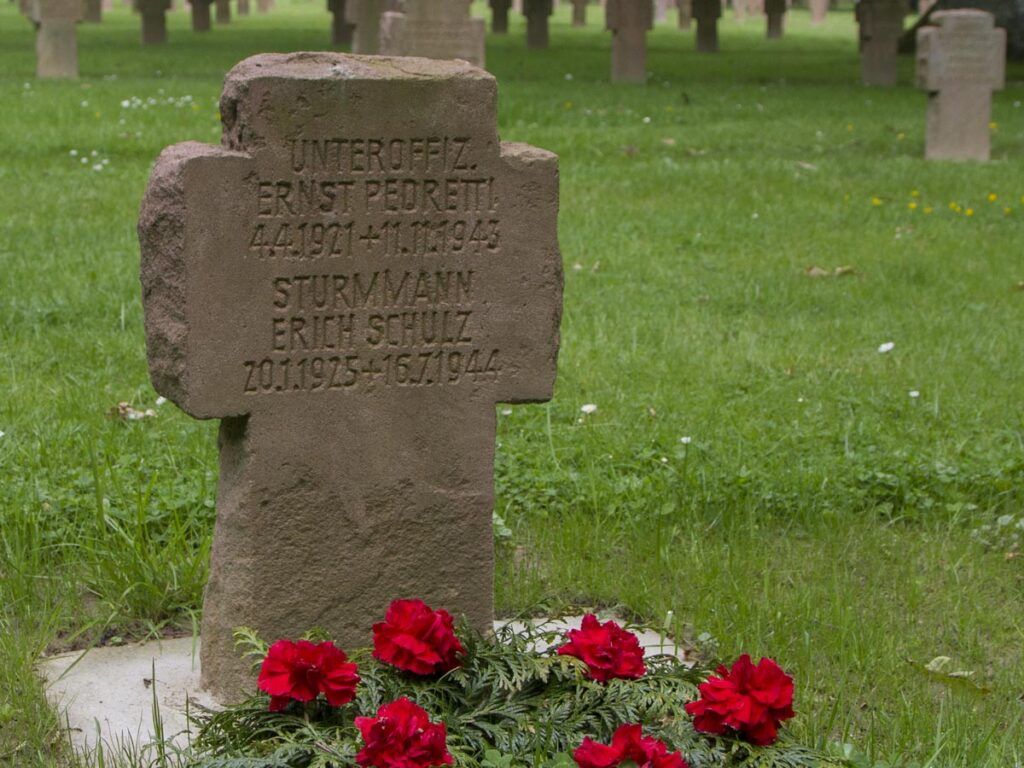
As you walk through the grounds, you’re witnessing the final resting place of those who died during the Allied push that would eventually lead to the liberation of France.
Post-War Developments
After the war, agreements between France and Germany led to the consolidation of German war graves. The current cemetery layout was developed as part of this process, moving beyond the initial British arrangement.
The cemetery’s design reflects German burial traditions while respecting French soil. Unlike some other German war cemeteries like La Cambe (which opened officially in 1961), St-Désir-de-Lisieux maintains a more somber, less symbolic layout.
Over the years, the site has become a place of reconciliation between former enemies. Families from Germany can visit their loved ones, while French locals and visitors from around the world come to reflect on the human cost of war.
Today, the cemetery is maintained with respect for those buried there, regardless of which side they fought on.
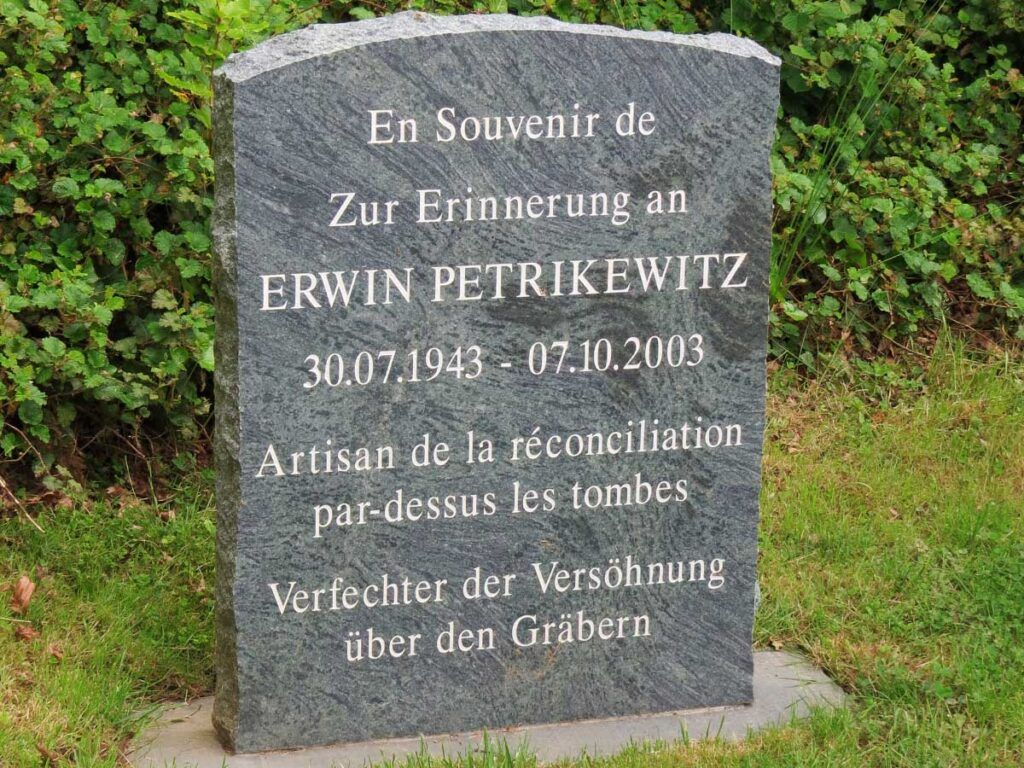
The Impact on Local Culture
The Saint-Désir-de-Lisieux German war cemetery has deeply influenced local Normandy culture, inspiring literary works and becoming a centerpiece for solemn commemorations that bring together former enemies in remembrance.
Literature and the Cemetery
Normandy’s military cemeteries, including the German cemetery at Saint-Désir-de-Lisieux, have inspired numerous literary works. Local author Emile Delavenay wrote poignantly about the “silent fields where former enemies rest side by side” in his collection of essays about post-war Normandy. You’ll find his books in many local shops.
Several poets have used the cemetery as a backdrop for reflections on war and reconciliation. The stark contrast between the peaceful cemetery today and the violent battles it commemorates has provided rich material for writers.
Local schools often assign projects about the cemetery, encouraging students to research and write about the soldiers buried there, creating a living literary tradition that connects generations.
Annual Commemorations and Ceremonies
Each year on November 11 (Armistice Day) and May 8 (Victory in Europe Day), you’ll find special ceremonies at the Saint-Désir-de-Lisieux cemetery. These events bring together French, German, and British citizens in a powerful display of reconciliation.
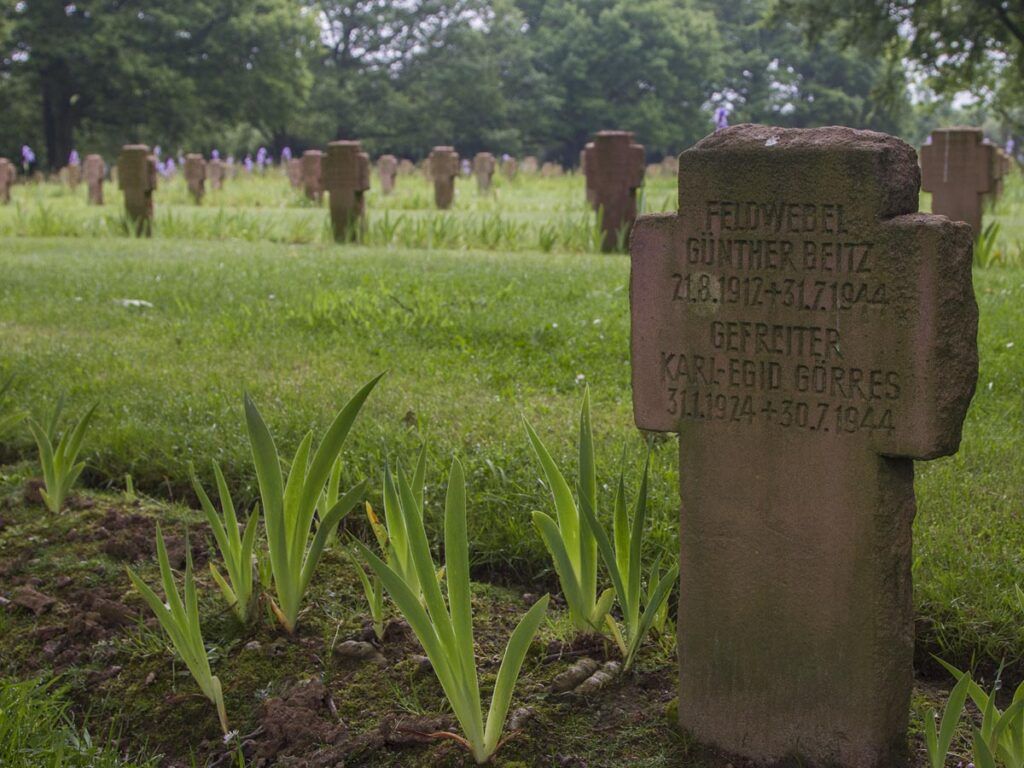
The ceremonies typically include:
- Wreath-laying by officials from multiple nations
- Readings of poems and letters from soldiers
- Musical performances by local school children
- Moments of silence to honor the 3,735 German soldiers buried here
Local families often participate by adopting graves and placing flowers. This practice helps keep the memory alive while teaching younger generations about the human cost of war.
The cemetery has become a symbol of how Normandy has transformed sites of conflict into places of peace and remembrance.
Cemetery Layout and Memorials
The St-Désir-de-Lisieux German War Cemetery features a thoughtful design that honors fallen soldiers while creating a peaceful space for reflection. The cemetery’s layout combines natural elements with symbolic architecture to create a meaningful memorial experience.
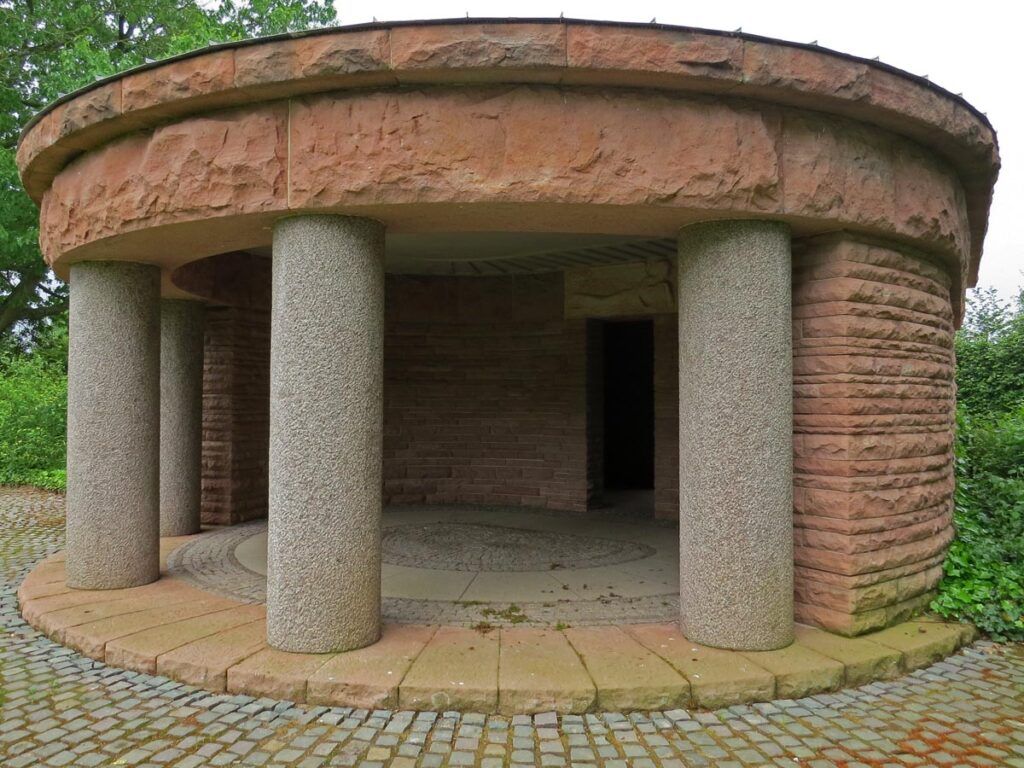
Grave Sites and Inscriptions
As you walk through the cemetery, you’ll notice rows of simple stone markers arranged in a park-like setting. Unlike the Commonwealth War Cemetery nearby, the German cemetery uses darker stones that lie flat or as small crosses marking individual graves. Each stone bears the name, rank, and dates of the soldier when known.
Many inscriptions include personal details and sometimes a short phrase. Some graves hold multiple soldiers, especially those unidentified during the post-war recovery efforts.
The cemetery is organized in sections, making it easier for families to locate specific graves. Small pathways wind between the grave sites, allowing visitors to move quietly through the grounds.
Memorial Architecture and Symbolism
The entrance to the cemetery features a modest stone gate that sets a somber tone. Unlike some more elaborate war memorials, the St-Désir-de-Lisieux cemetery emphasizes simplicity and natural harmony.
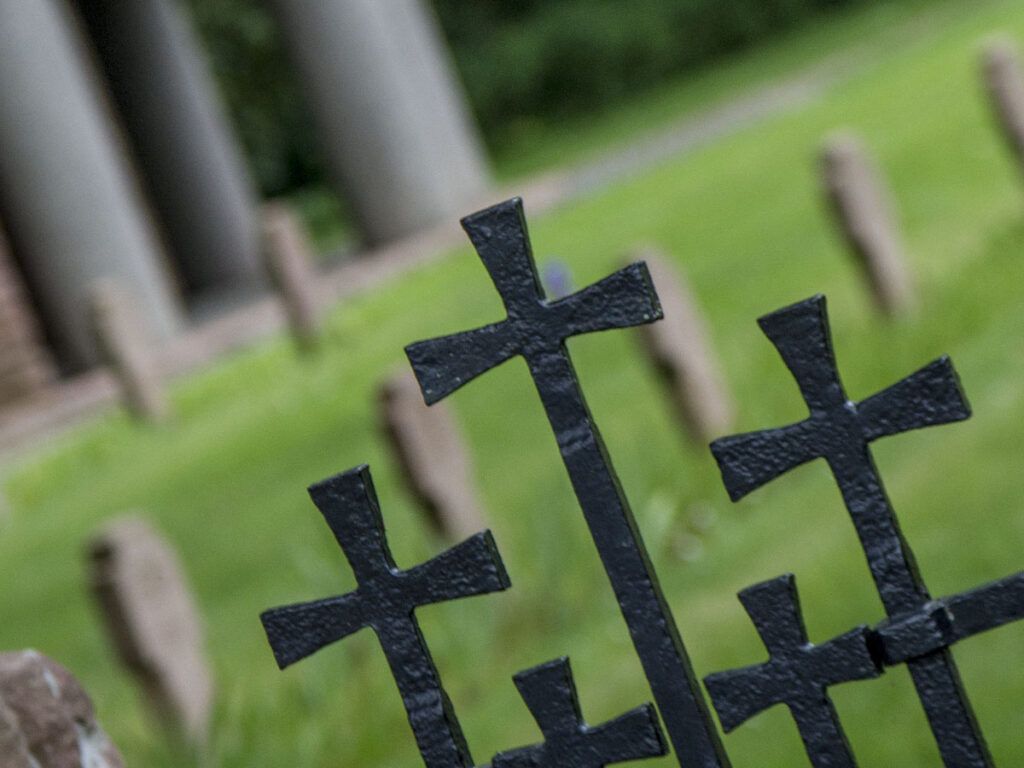
A central memorial structure provides a focal point for reflection. Here you’ll find a book listing all known burials, which you can consult to locate specific graves.
Trees and landscaping play an important role in the cemetery’s design. Mature trees provide shade and a sense of permanence, while carefully maintained grass creates a carpet-like effect between the grave markers.
The entire design follows German cemetery traditions while respecting the French landscape. This approach reflects the post-war reconciliation efforts between former enemies.
Notable Burials
Several high-ranking German officers rest at St-Désir-de-Lisieux, including commanders who fought during the Normandy campaign. These graves are marked similarly to others but can be identified by their military rank inscriptions.
You’ll find soldiers from various German military branches represented here—army, air force, and navy personnel who died during the Allied advance through Normandy in 1944.
Some graves belong to very young soldiers, highlighting the tragic loss of young lives during the final stages of the war. The Commonwealth War Graves Commission occasionally conducts joint ceremonies with German representatives at this site to honor all fallen soldiers.
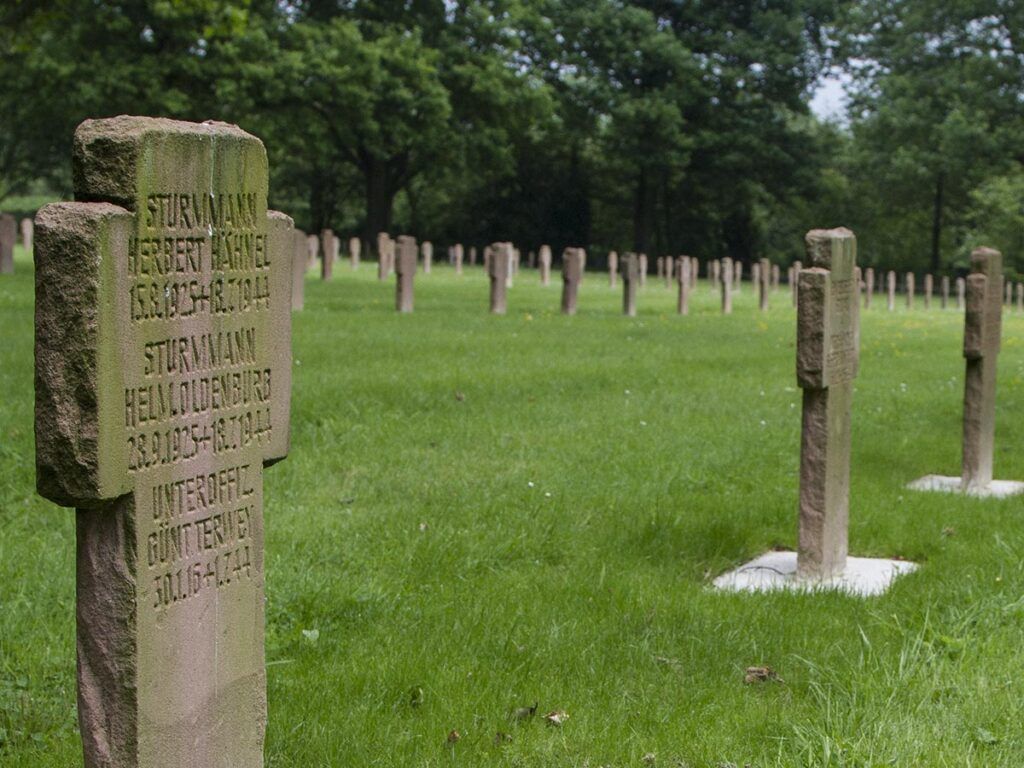
Visitors often leave small tokens of remembrance at certain graves, showing that even decades after the war, these soldiers are not forgotten.
Planning Your Visit
A smooth visit to St-Désir-de-Lisieux German War Cemetery requires a bit of preparation. This tranquil site of remembrance offers visitors a chance to reflect on the human cost of war while honoring the 3,735 German soldiers laid to rest here.
Opening Times and Seasons
The cemetery is generally open daily throughout the year. You’ll find the grounds accessible from:
- April to September: 8:00 AM to 7:00 PM
- October to March: 8:00 AM to 5:00 PM
The site is completely free to visit, with no entrance fees. For the most peaceful experience, consider visiting on weekday mornings when fewer tourists are present.
Spring and early summer offer the most pleasant weather conditions, with the cemetery grounds at their most verdant. The anniversary of D-Day (June 6th) sees increased visitor numbers throughout Normandy, including at this cemetery.
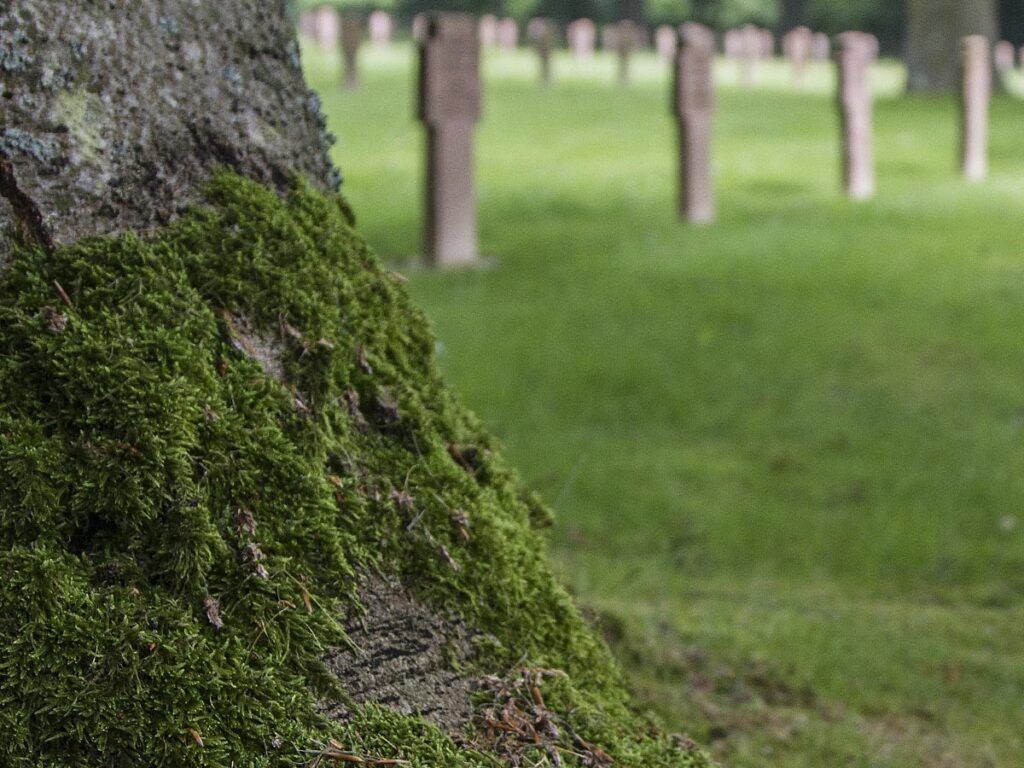
Guided Tours and Educational Resources
While no formal tour guides are stationed at the cemetery, several options exist for enhancing your visit:
- Audio Guides: Available for download through various Normandy battlefield tour apps
- Local Historians: Can be booked in advance through tourism offices in Lisieux
- Information Panels: Located throughout the cemetery providing historical context
The nearby Lisieux Tourist Office offers educational materials about the German military presence in Normandy during WWII. These resources help visitors understand the broader historical context of the cemetery.
Many visitors find it meaningful to research the 15th/7th Army and 5th Panzer Army beforehand, as many soldiers from these units rest here.
Recommended D-Day Tours from Paris:
- From Paris: Normandy D-Day Beaches Day Trip
- From Paris: 2-Day Normandy & Brittany Tour
- Normandy American D-Day Experience (From Bayeux Station)
Recommended D-Day Tours from Bayeux:
- From Bayeux: American D-Day Sites in Normandy Full-Day Tour
- From Bayeux: American D-Day Sites in Normandy Half-Day Tour
- From Bayeux: Half-Day Normandy WWII Sidecar Tour
- Full-Day US Battlefields of Normandy Tour from Bayeux
Recommended Private D-Day Tours:
- From Paris: Normandy D-Day Landing Beaches Full-Day Tour
- From Rouen: Normandy D-Day Beaches Private Full-Day Tour
- Private Tour: Rouen, Bayeux, and Falaise Day Trip from Bayeux
- Normandy WWII Private Half-day Sidecar Tour From Bayeux
Recommended Band of Brothers Tours:
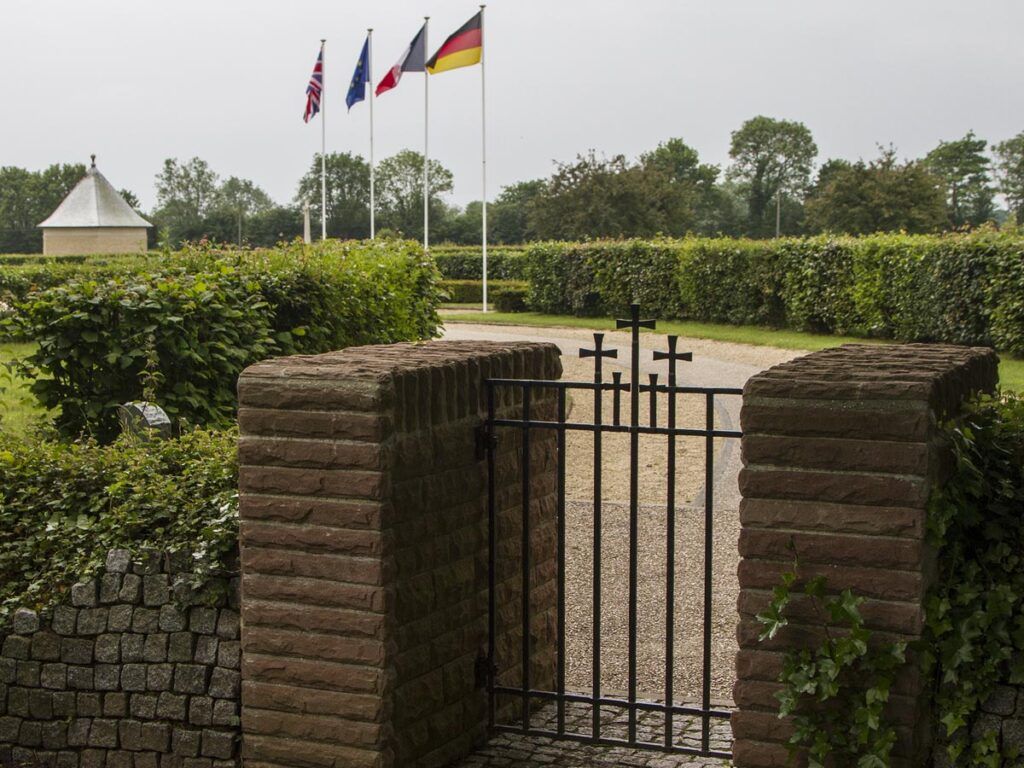
Getting Here and Accommodations
The cemetery is situated about 4 km west of Lisieux, just off the D159 road. Several transportation options are available:
- By Car: The most convenient option. Look for signs to “Cimetière militaire allemand” from Lisieux
- By Bus: Limited service from Lisieux city center (check schedules with local tourism office)
- By Taxi: Available from Lisieux train station
Accommodations cluster mainly in Lisieux, ranging from budget-friendly options to charming Norman guesthouses. Consider staying in Lisieux as a base to explore other WWII sites in Normandy.
The cemetery is approximately a 30-minute drive from Honfleur and about 45 minutes from Caen, making it easily combinable with other historical sites in a day trip.
Recommended Hotels in Caen:
- Hôtel des Quatrans
- Best Western Plus Le Moderne
- Mercure Caen Centre Port de Plaisance
- Ibis Styles Caen Centre Gare
- Hôtel Restaurant Ivan Vautier
Why It’s Worth Visiting
Visiting Saint-Désir-de-Lisieux German War Cemetery gives you a powerful glimpse into the human cost of war. As the smallest German cemetery in Normandy with 3,735 soldiers laid to rest, it offers a more intimate experience than some larger sites.
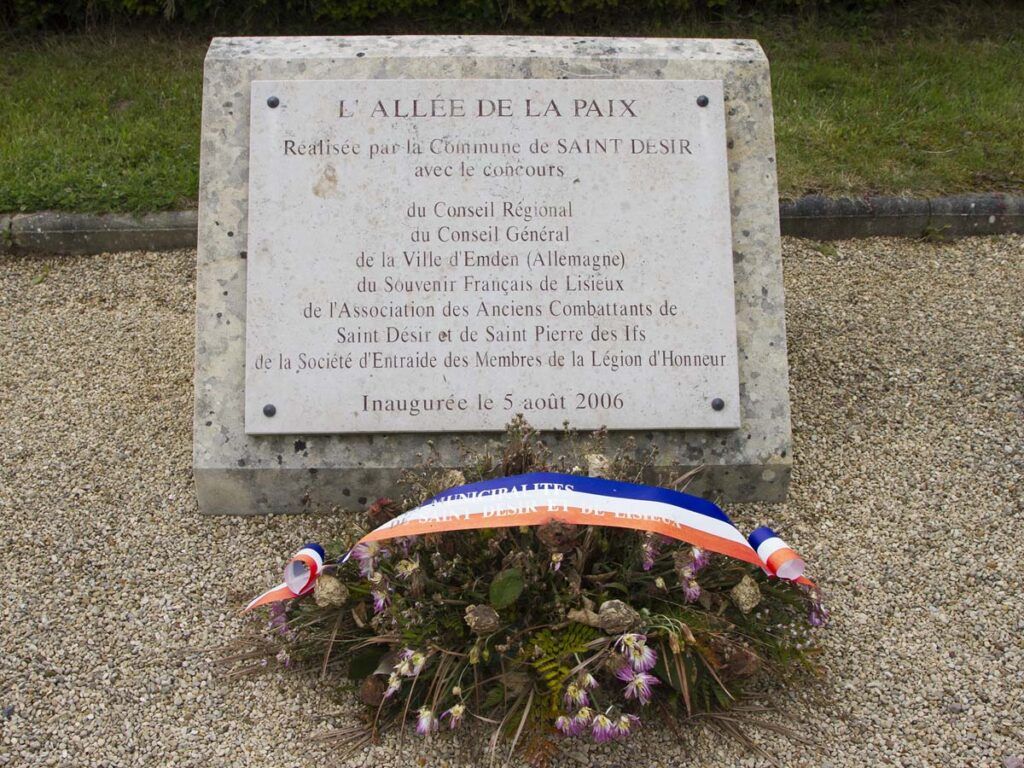
The cemetery serves as a meaningful symbol of French-German reconciliation. This meticulously maintained space creates a peaceful atmosphere for reflection, regardless of your background or nationality.
Many of the soldiers buried here fell during the final stages of the Normandy campaign. They primarily came from the 15th/7th Army and the 5th Panzer divisions who fought in the Falaise Pocket battle in August 1944.
You’ll find this cemetery particularly moving if you’re interested in understanding all perspectives of World War II. Walking among the graves helps you comprehend the war’s impact on all who fought, not just the Allied forces.
Its location makes it an excellent addition to a broader Normandy battlefield tour. You can easily combine it with visits to nearby Allied cemeteries for a more complete historical understanding.
The site’s solemn beauty and careful maintenance reflect the respect shown to fallen soldiers. This respectful presentation creates a dignified space for remembrance and contemplation.
This cemetery offers you a chance to step away from the more crowded D-Day sites while still connecting with important World War II history.

